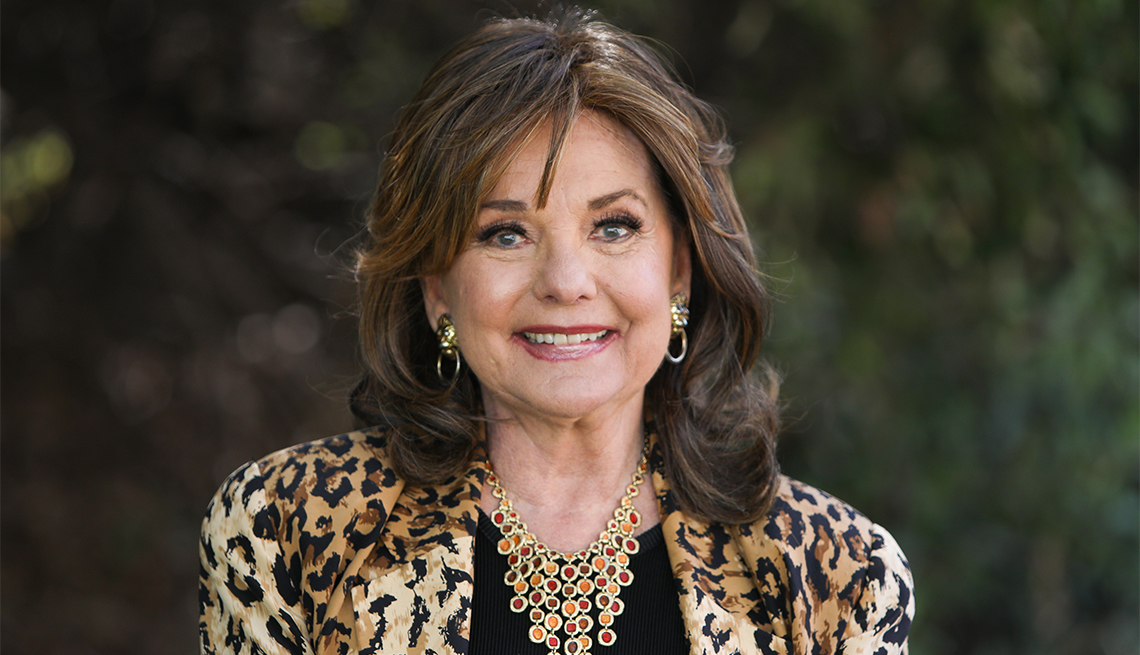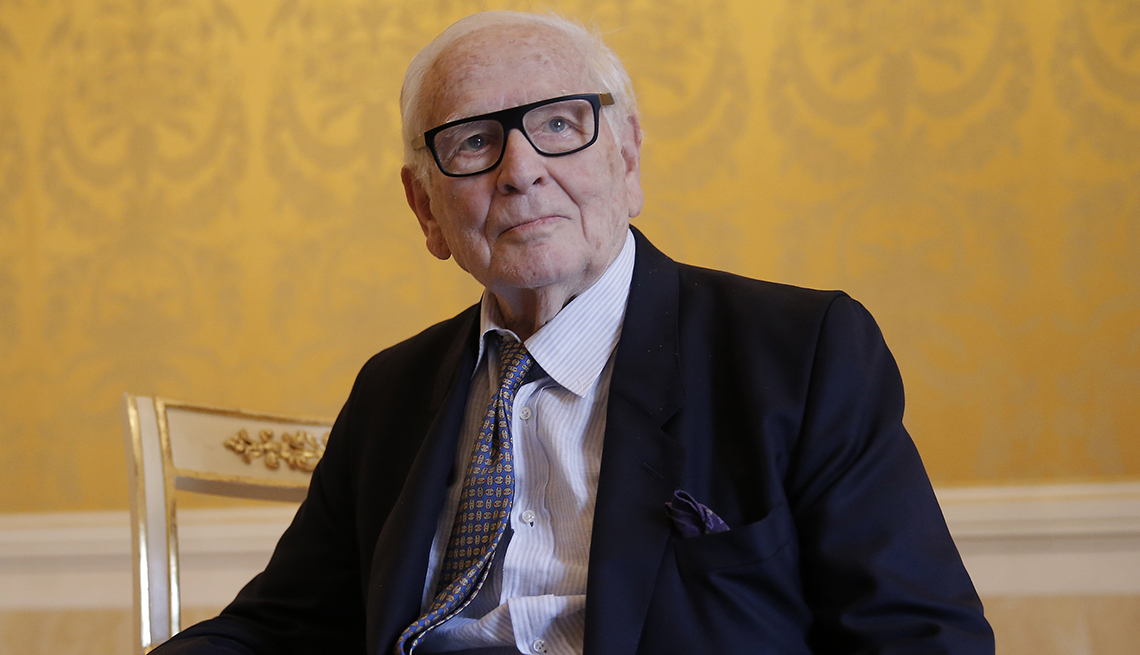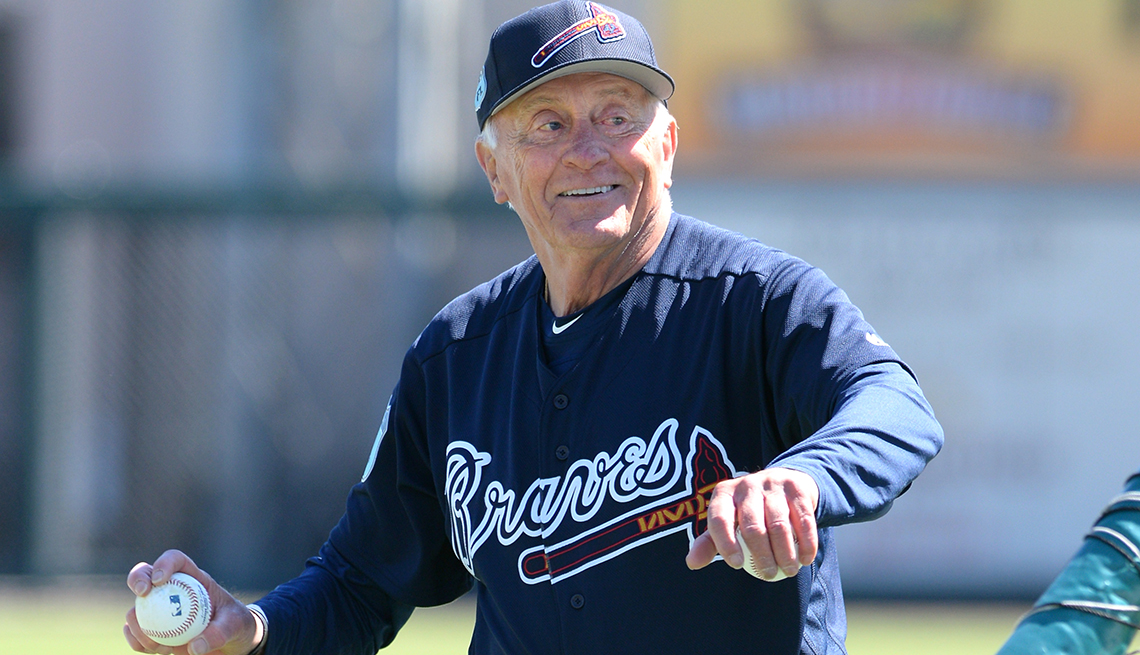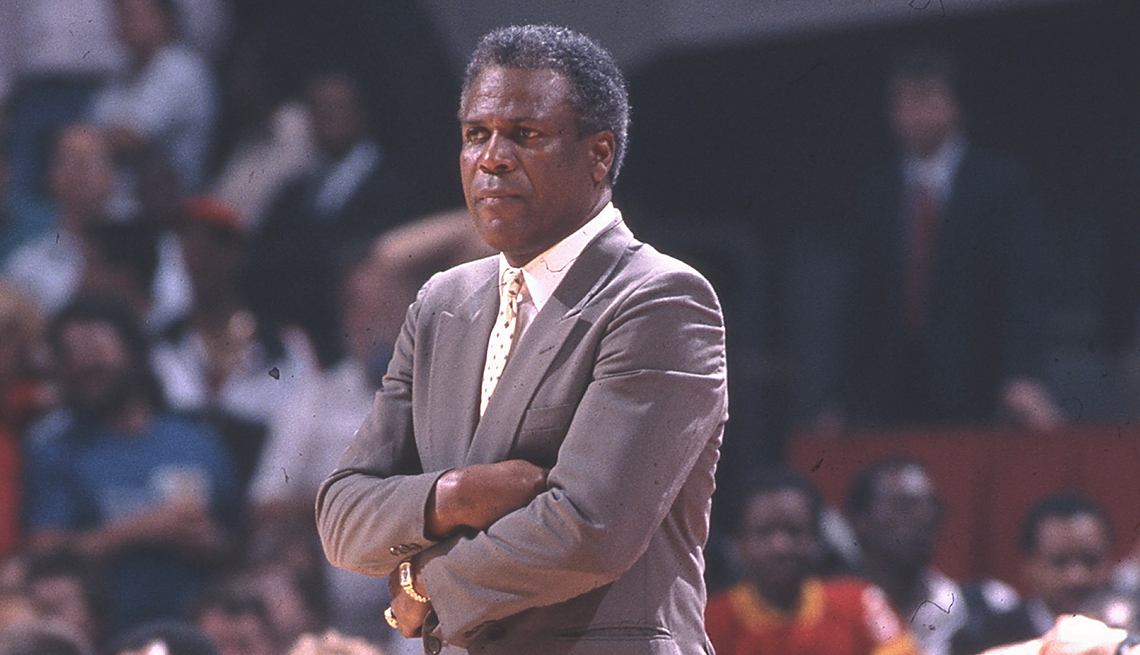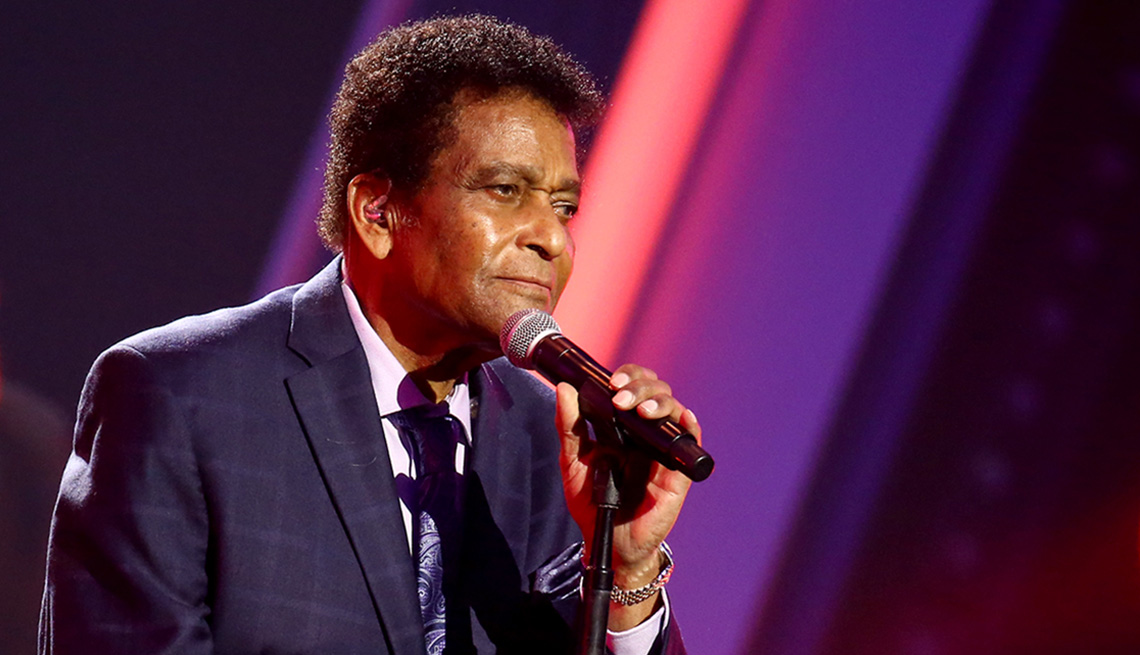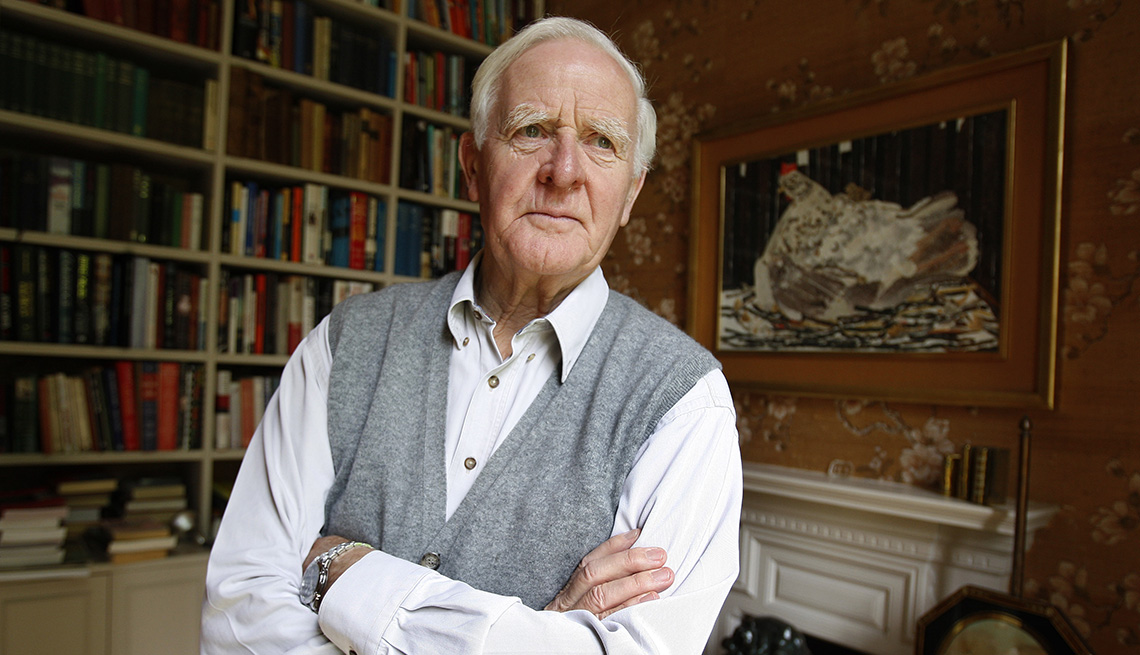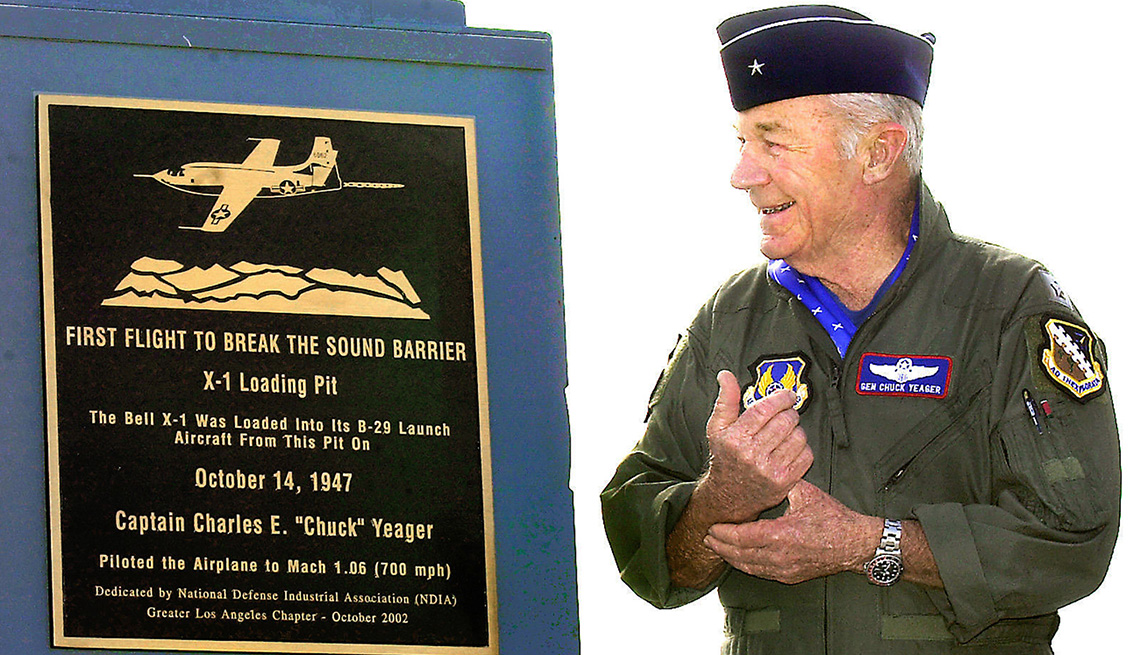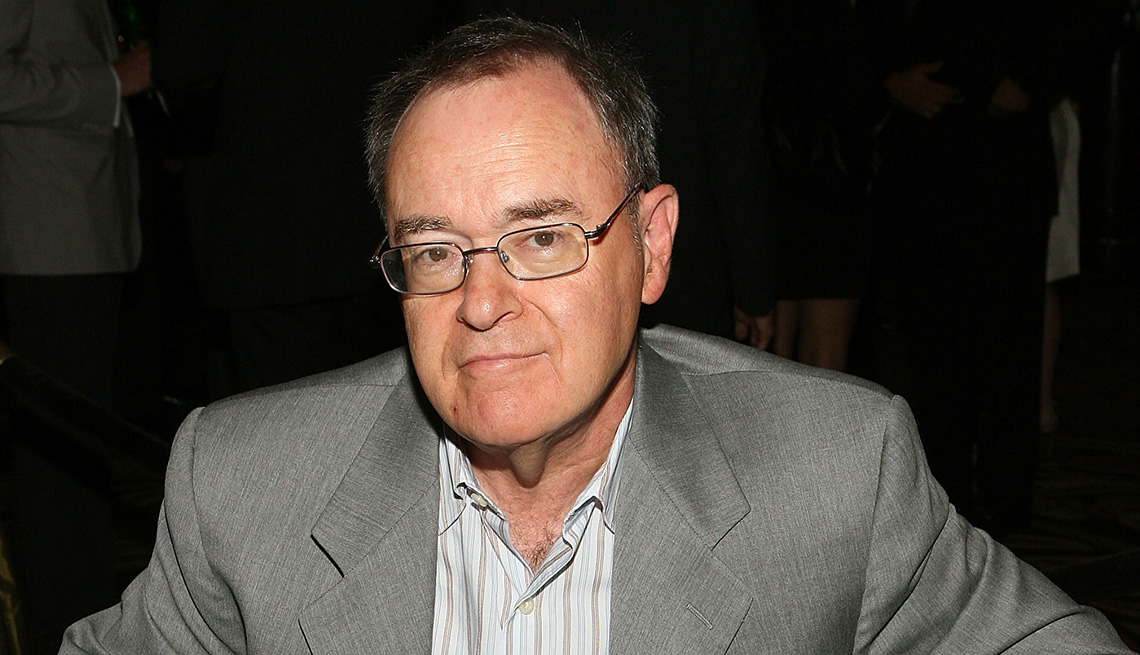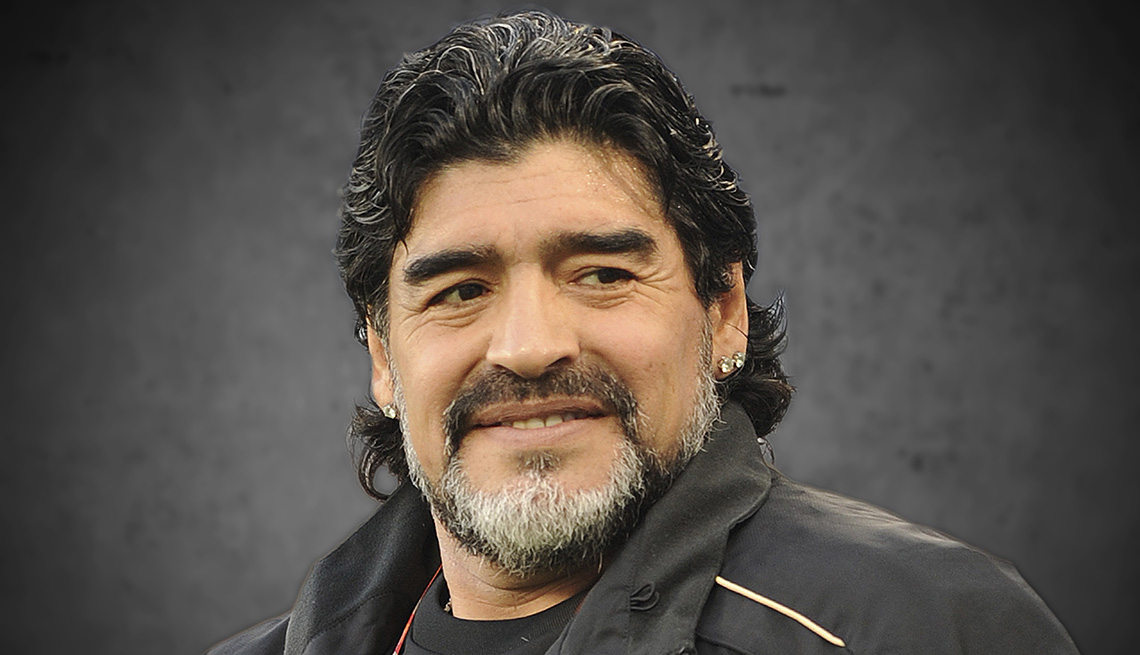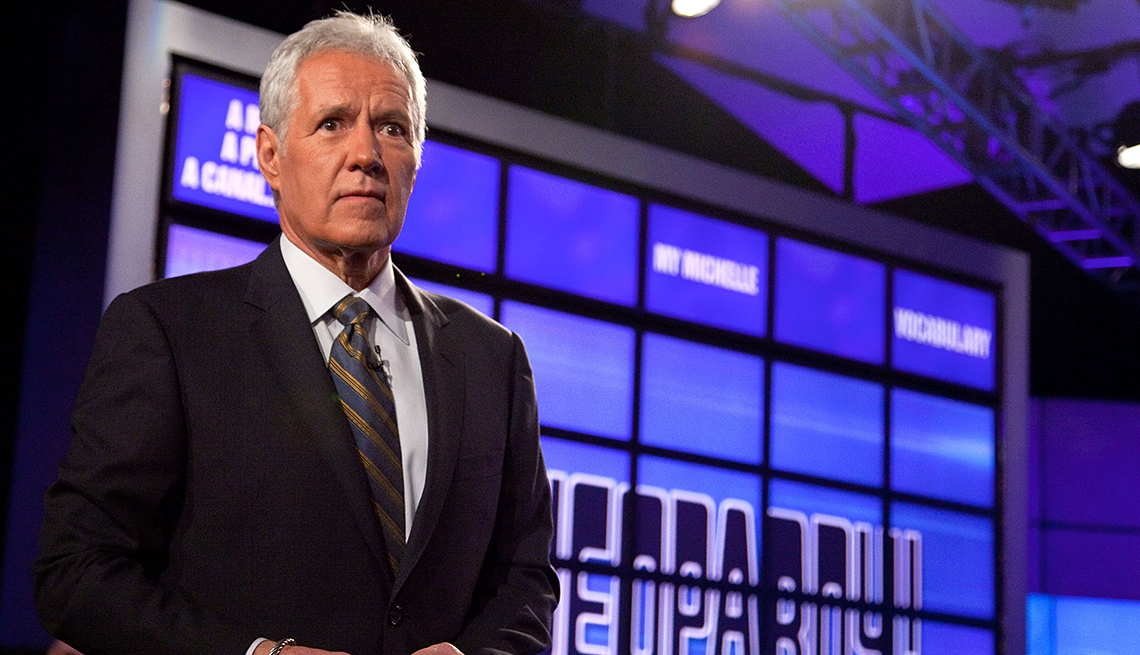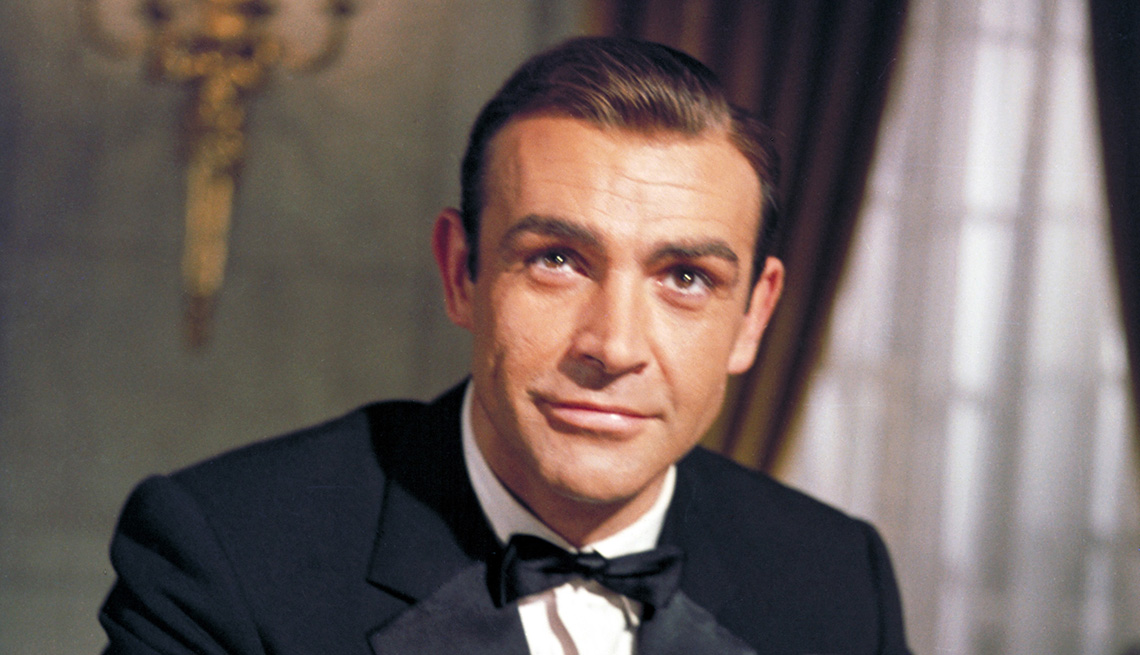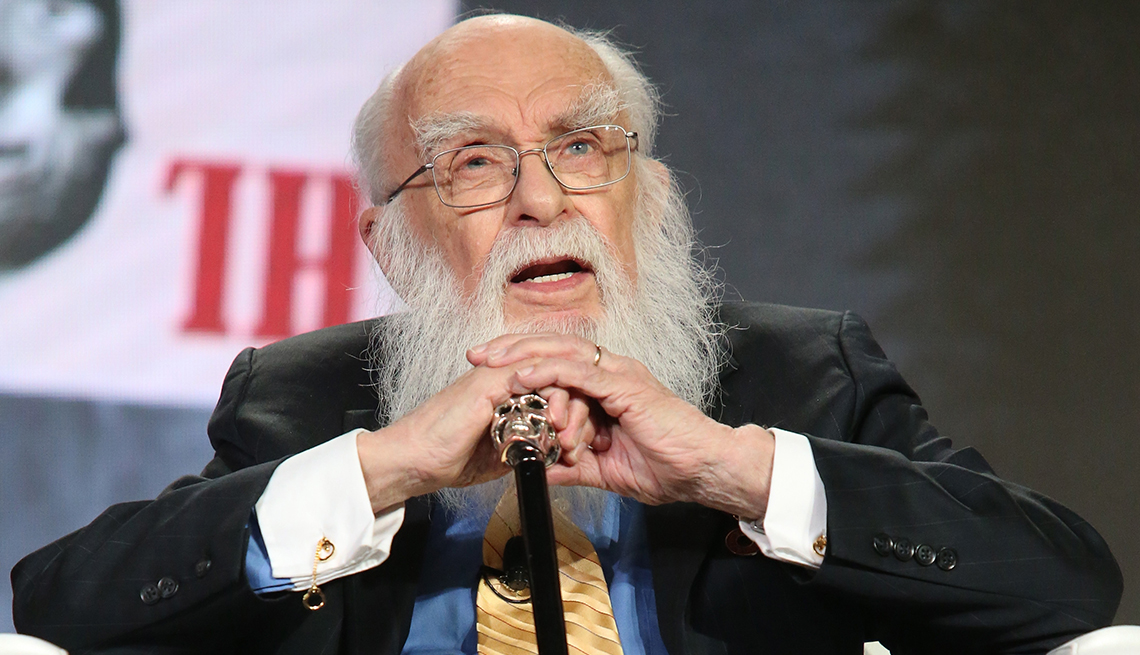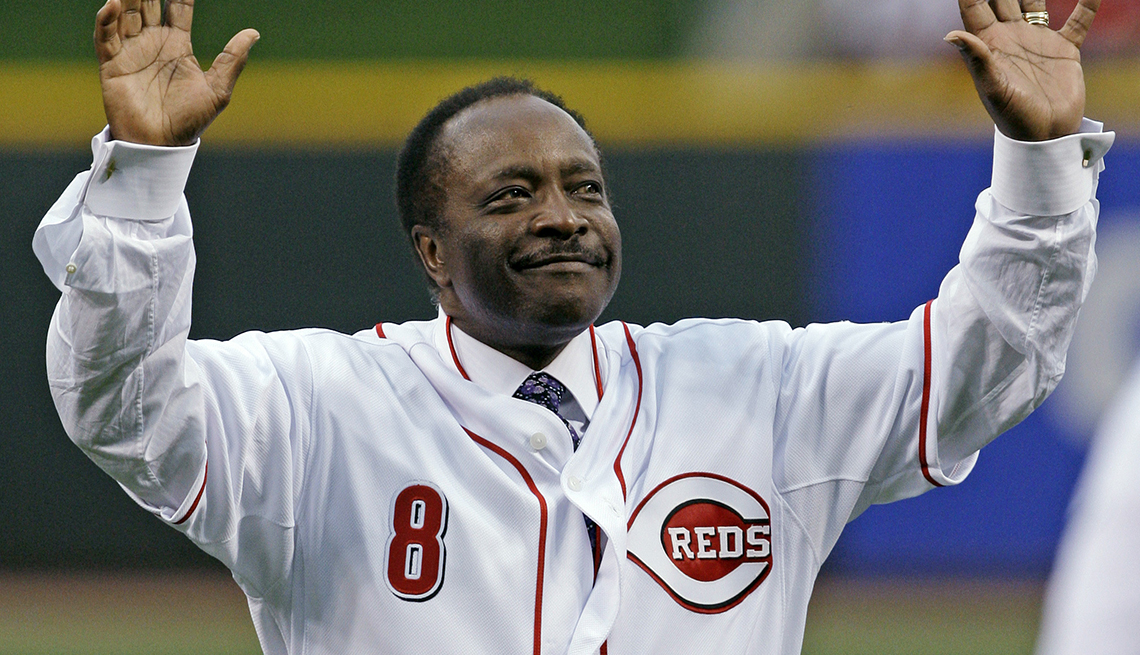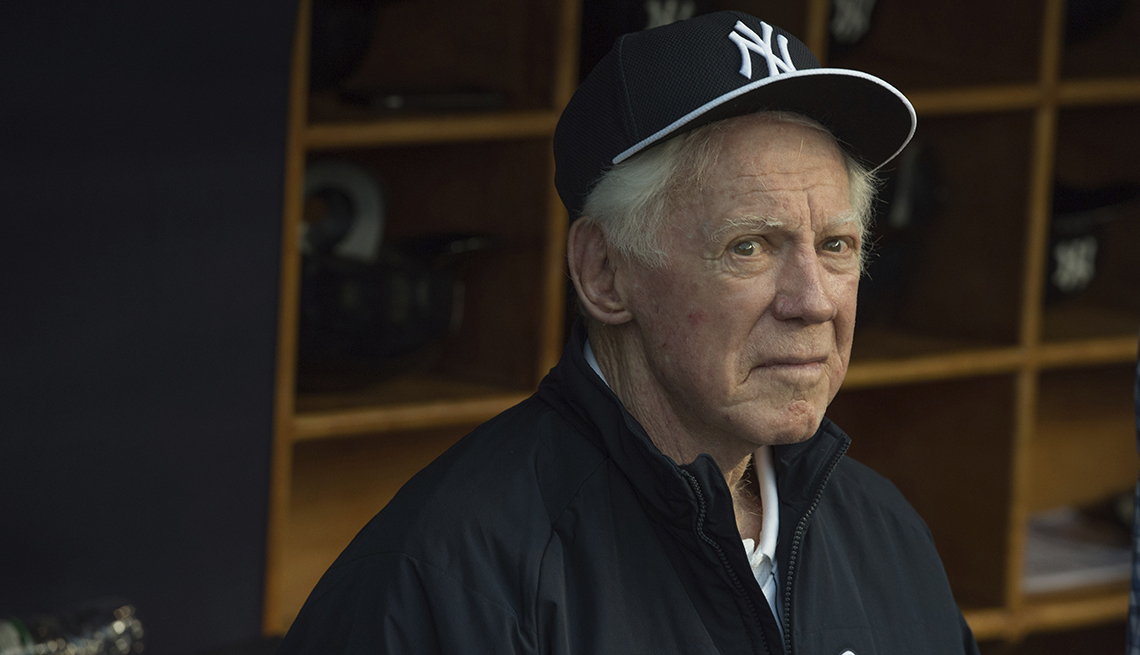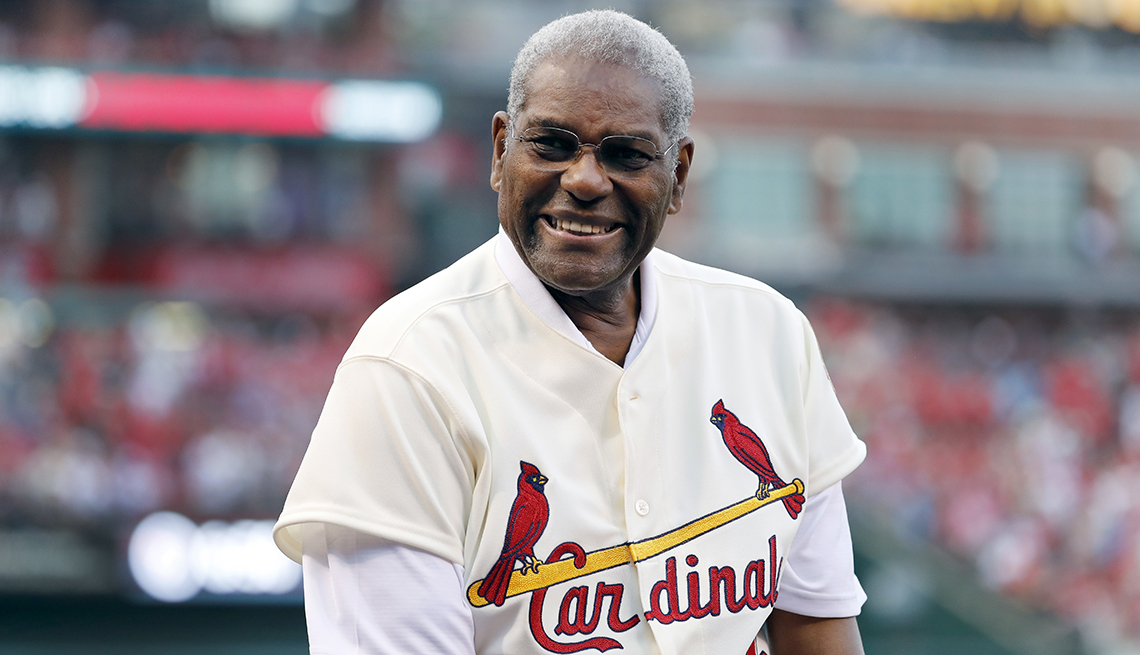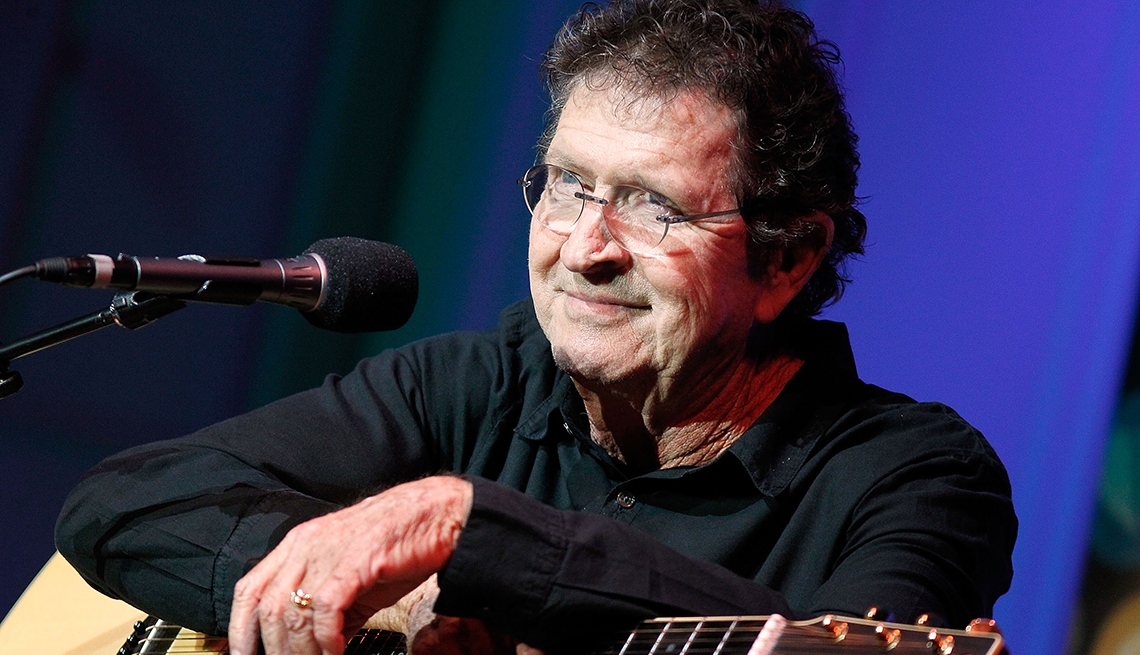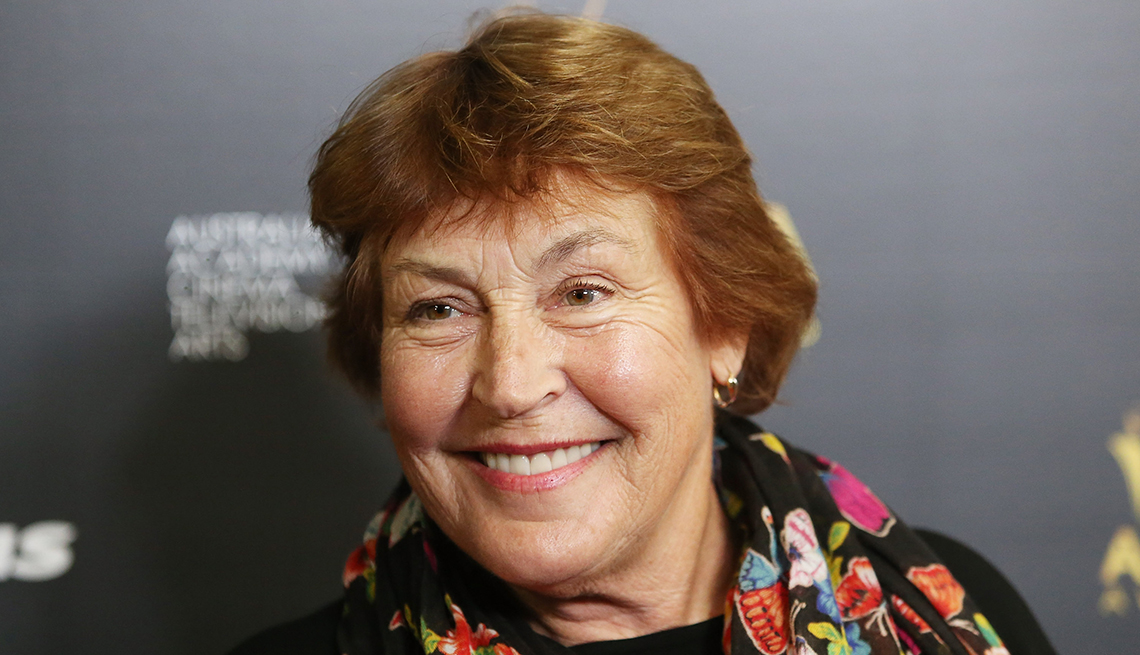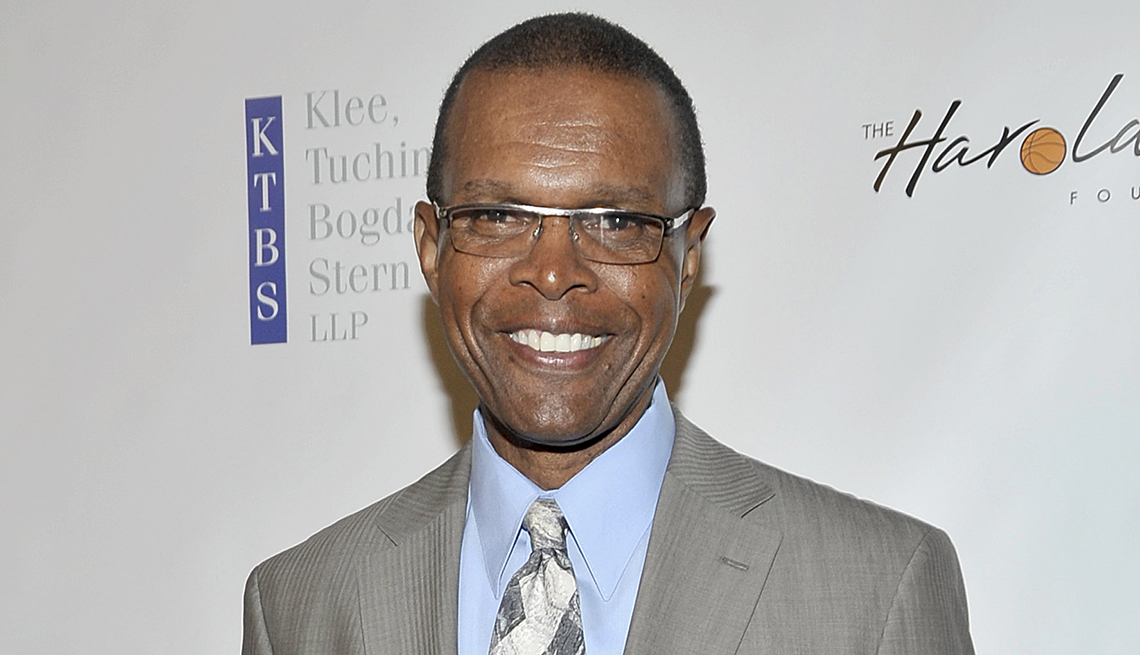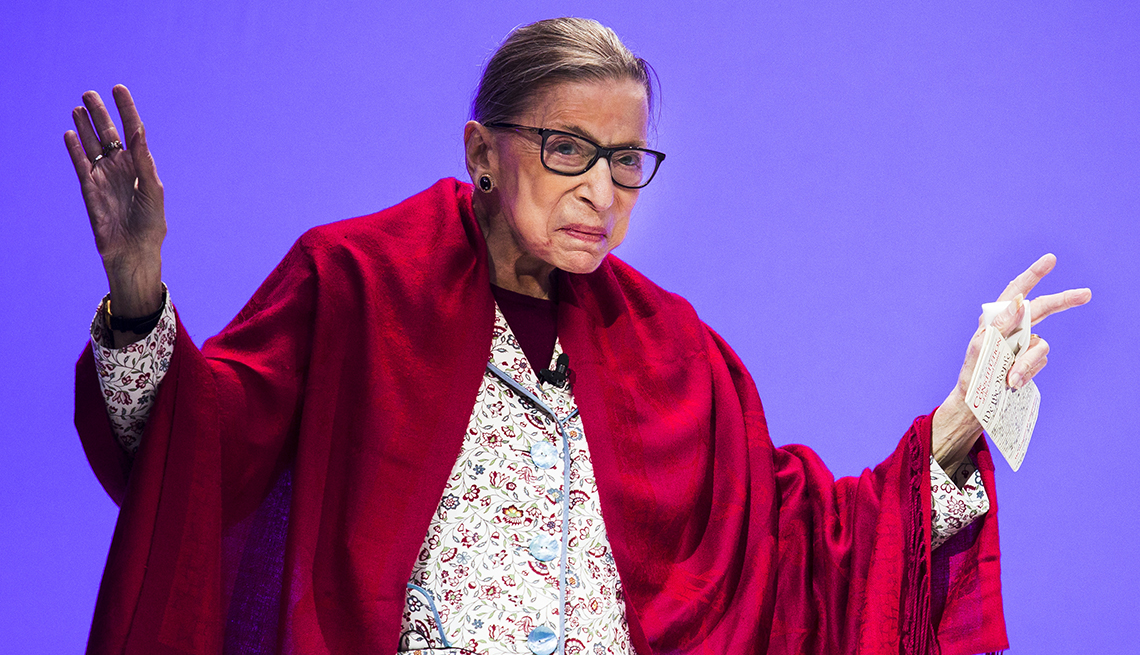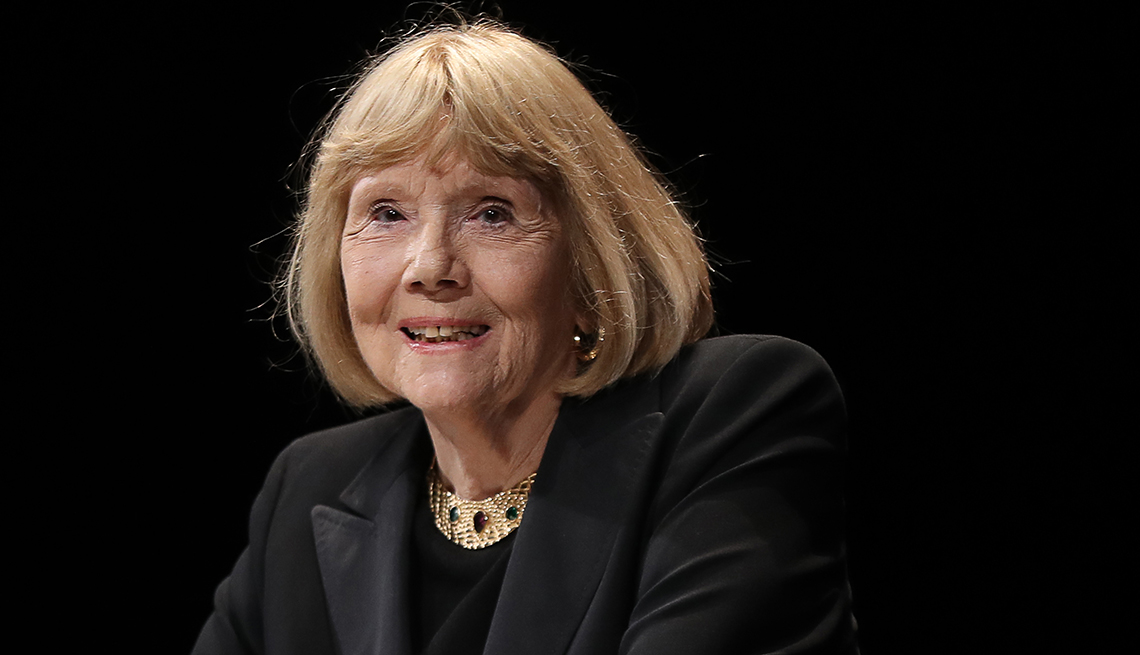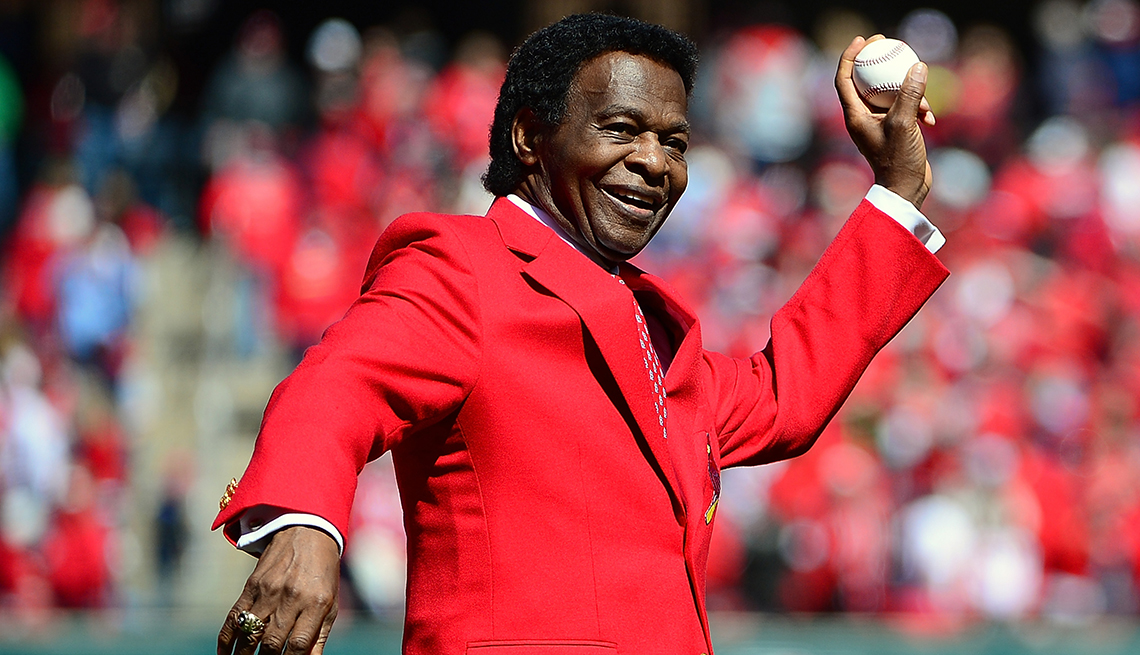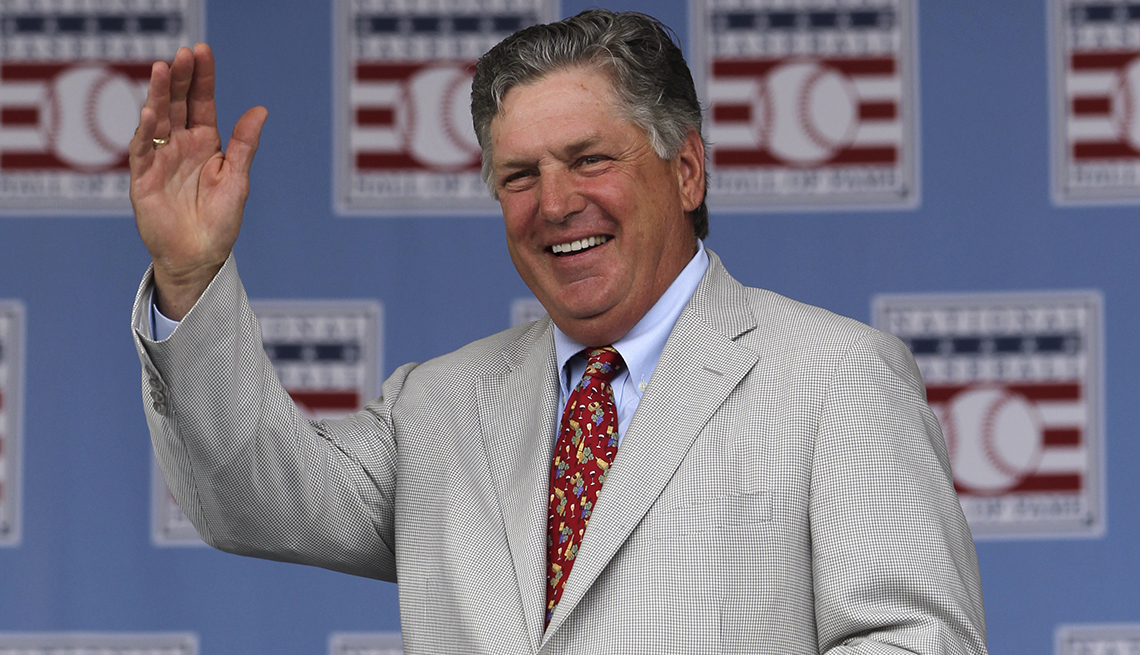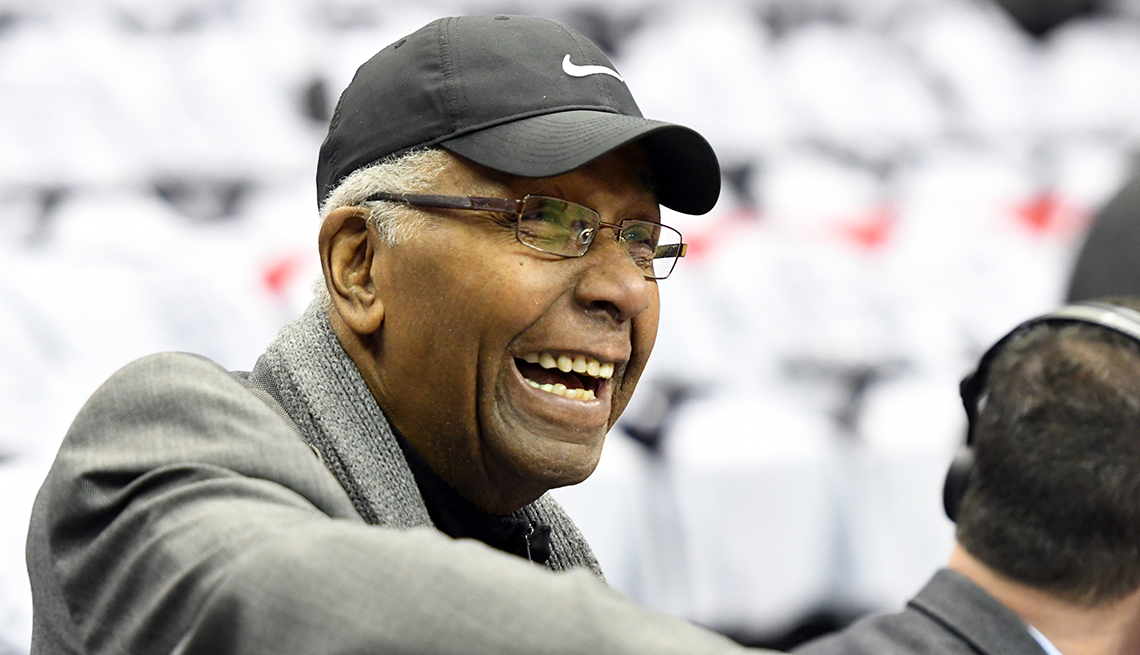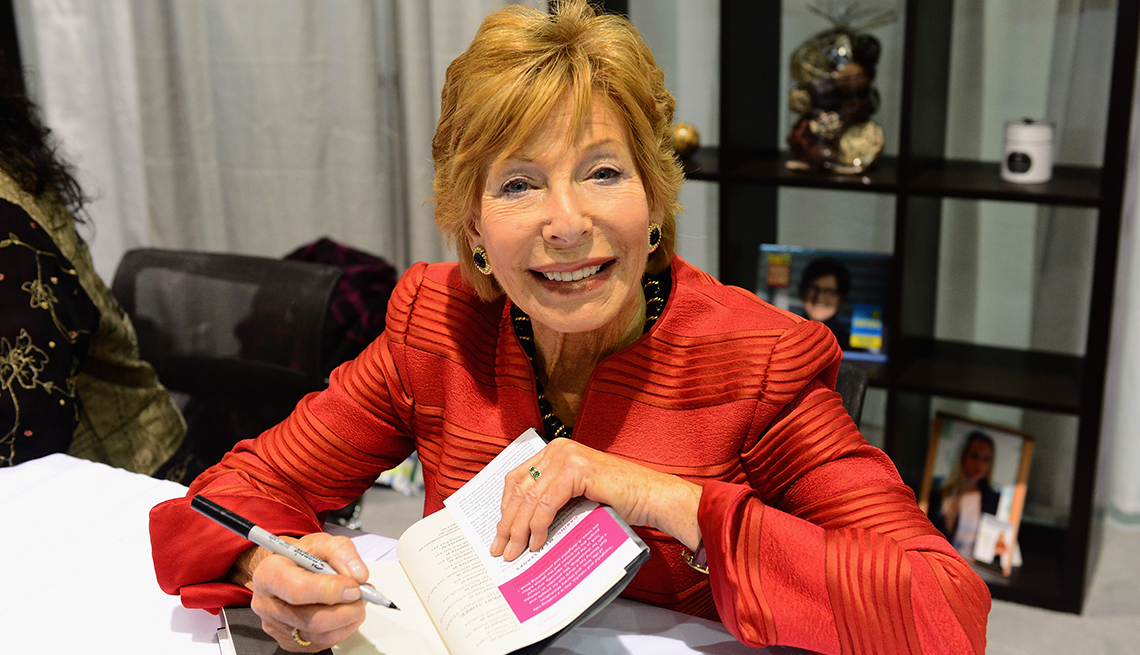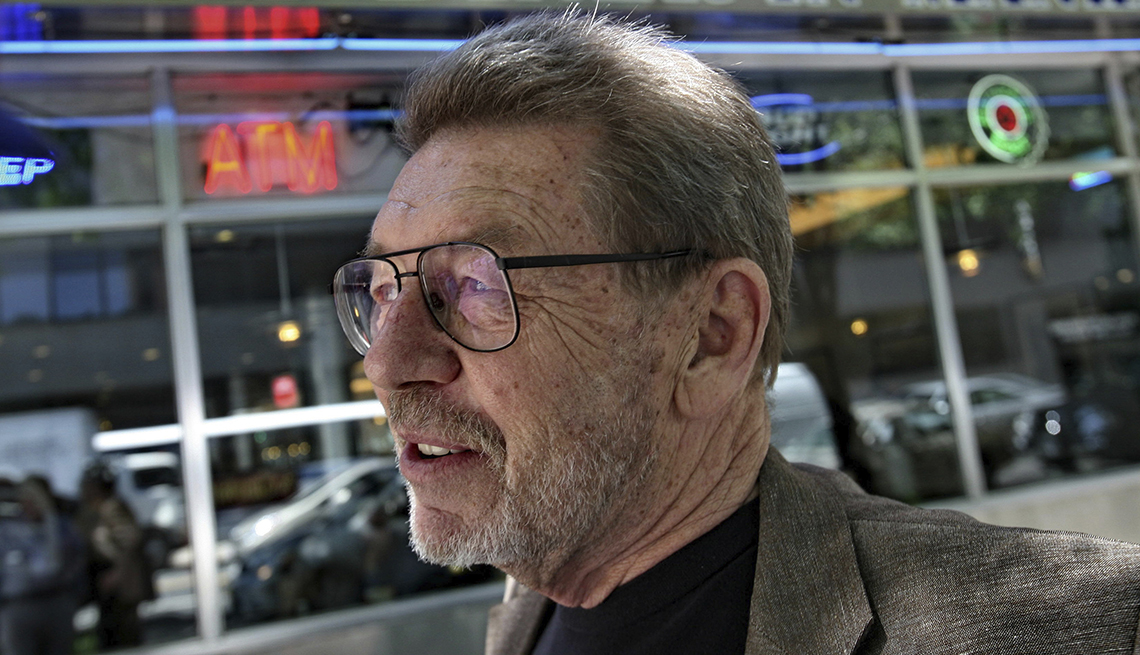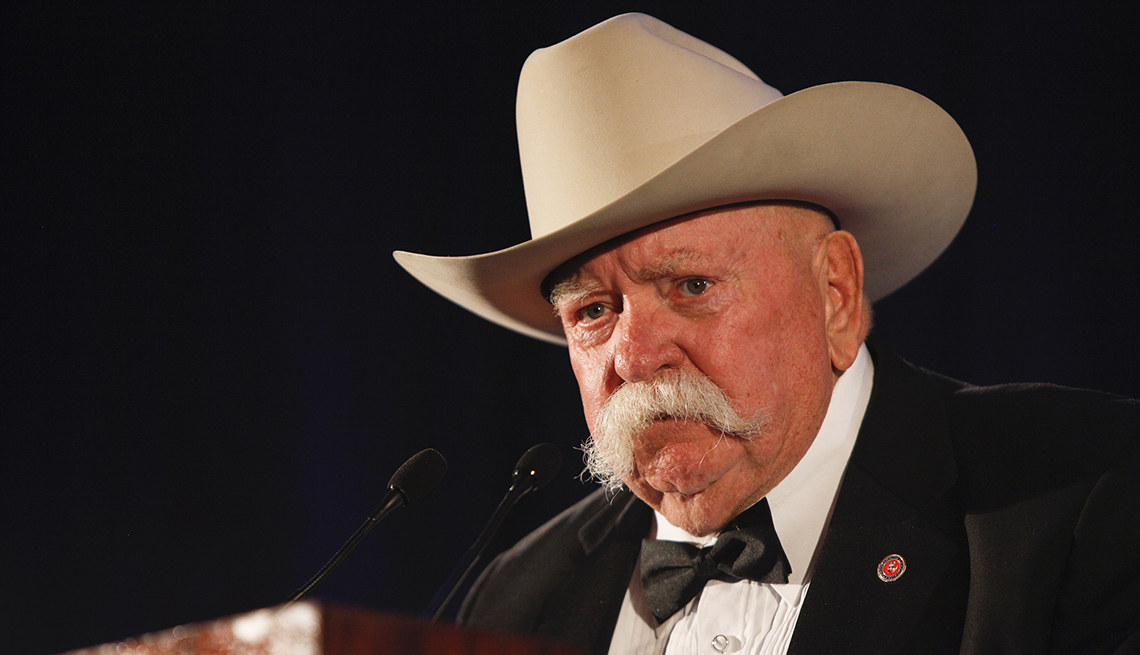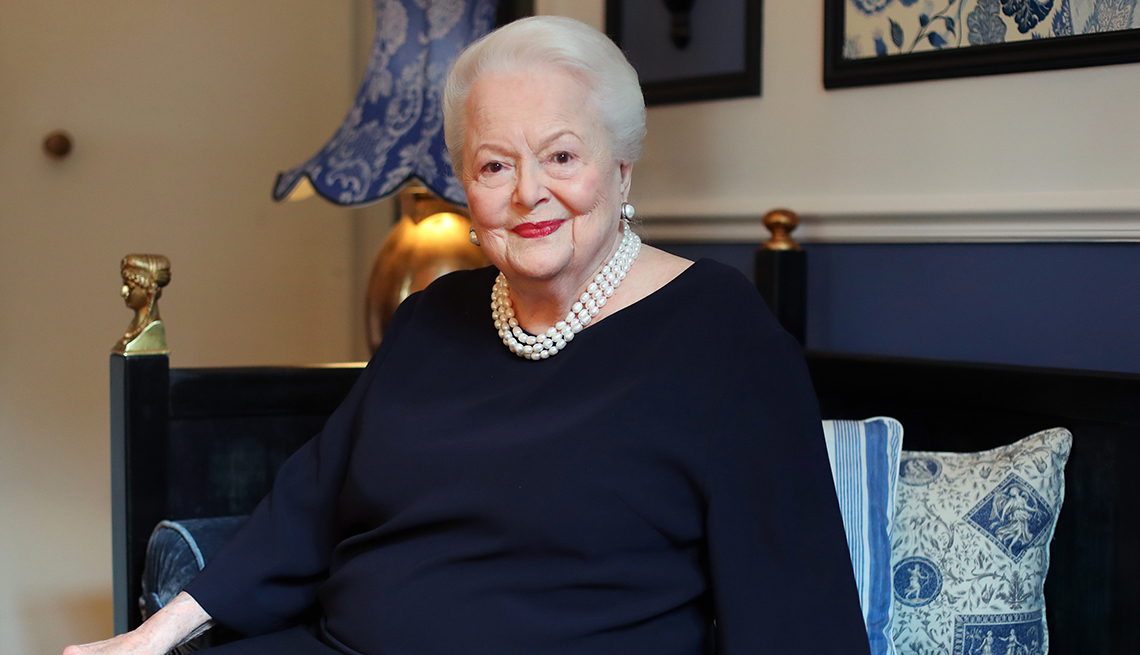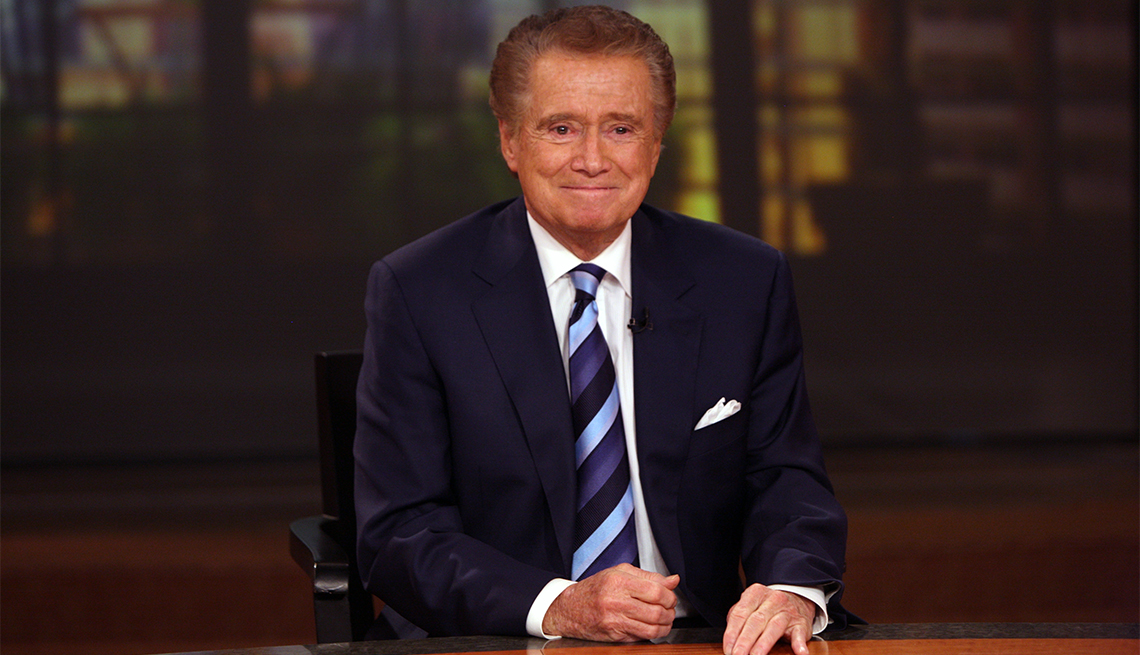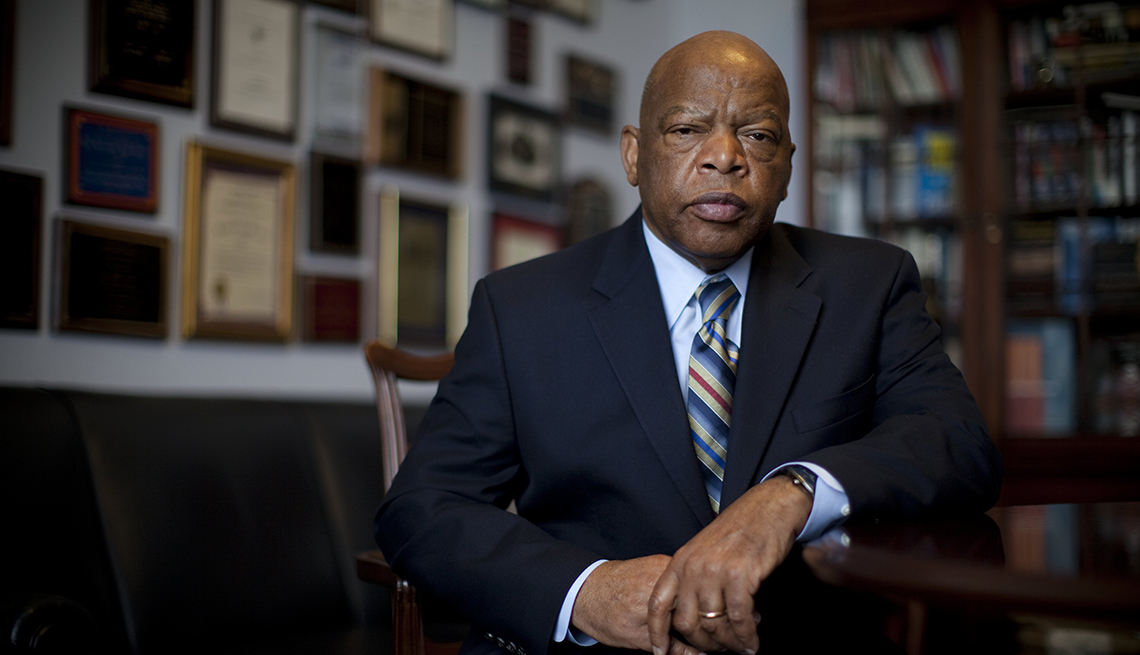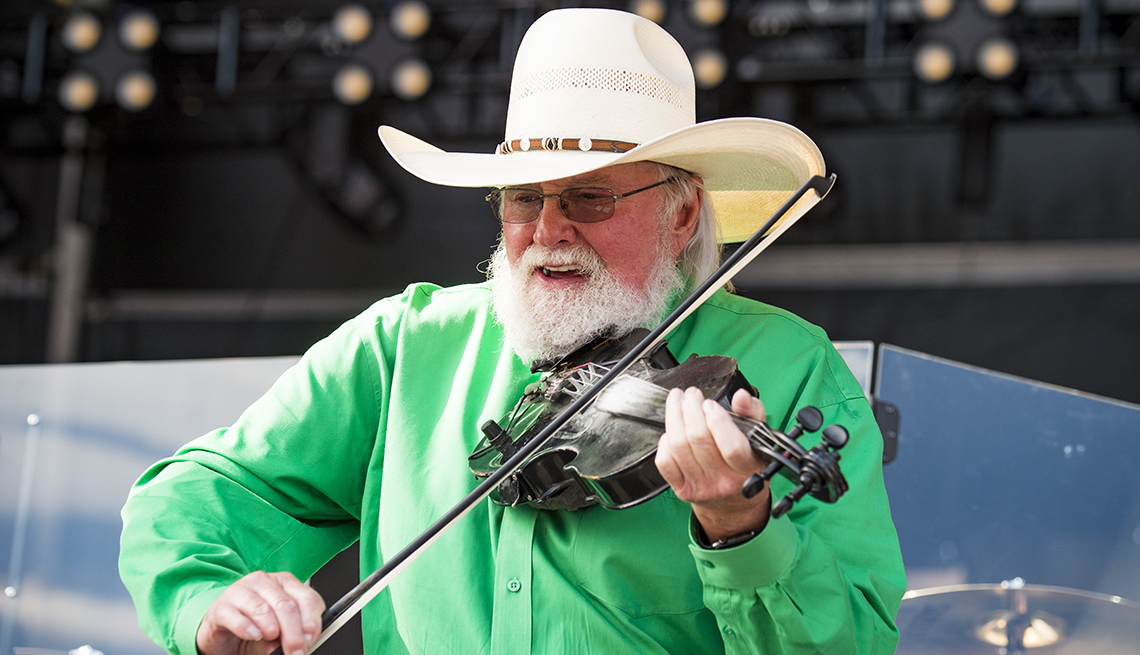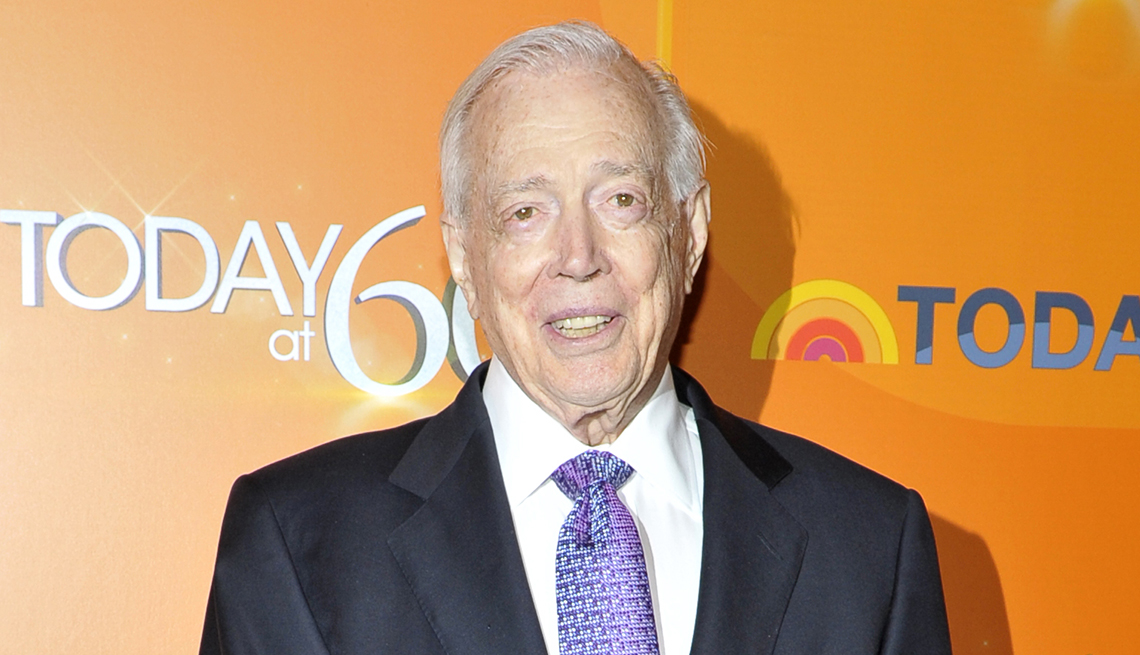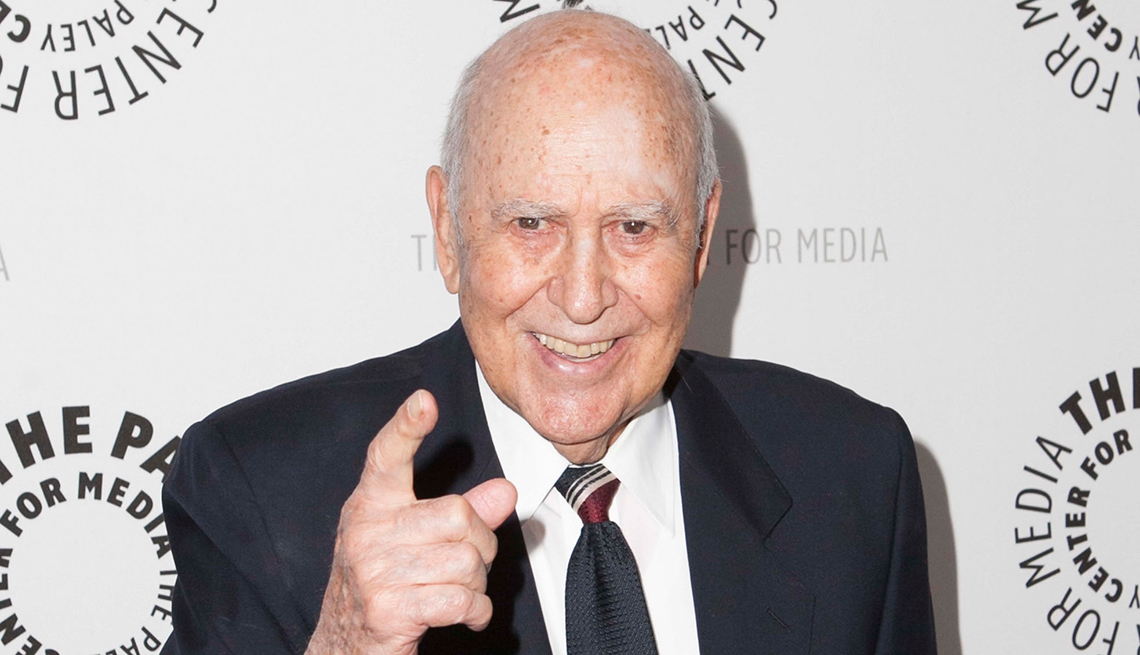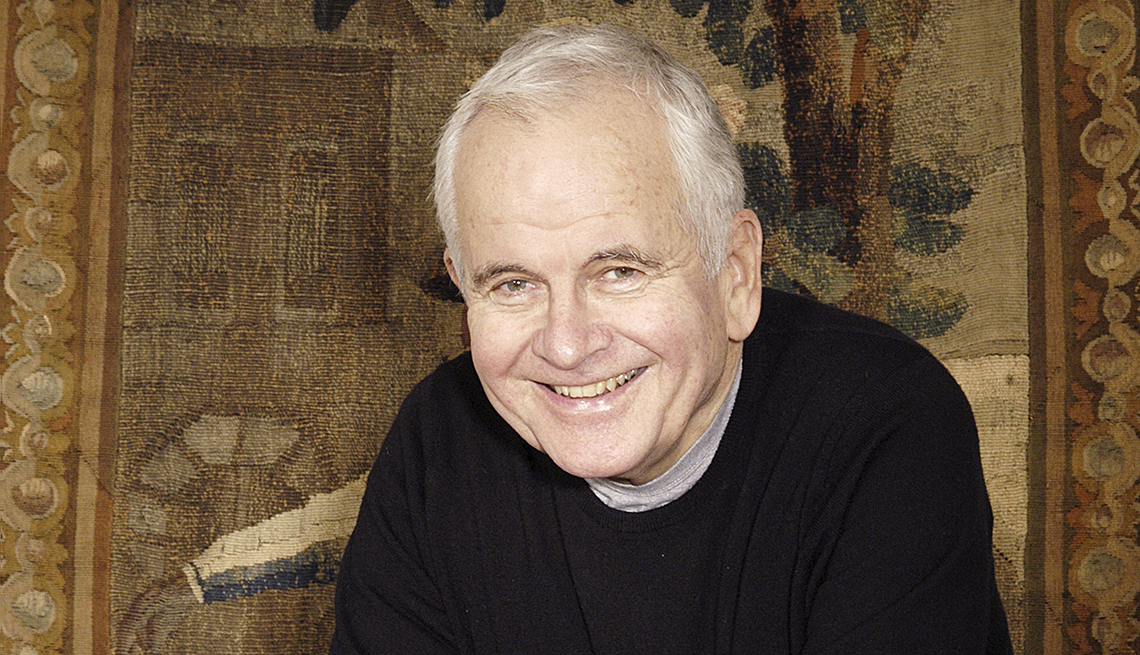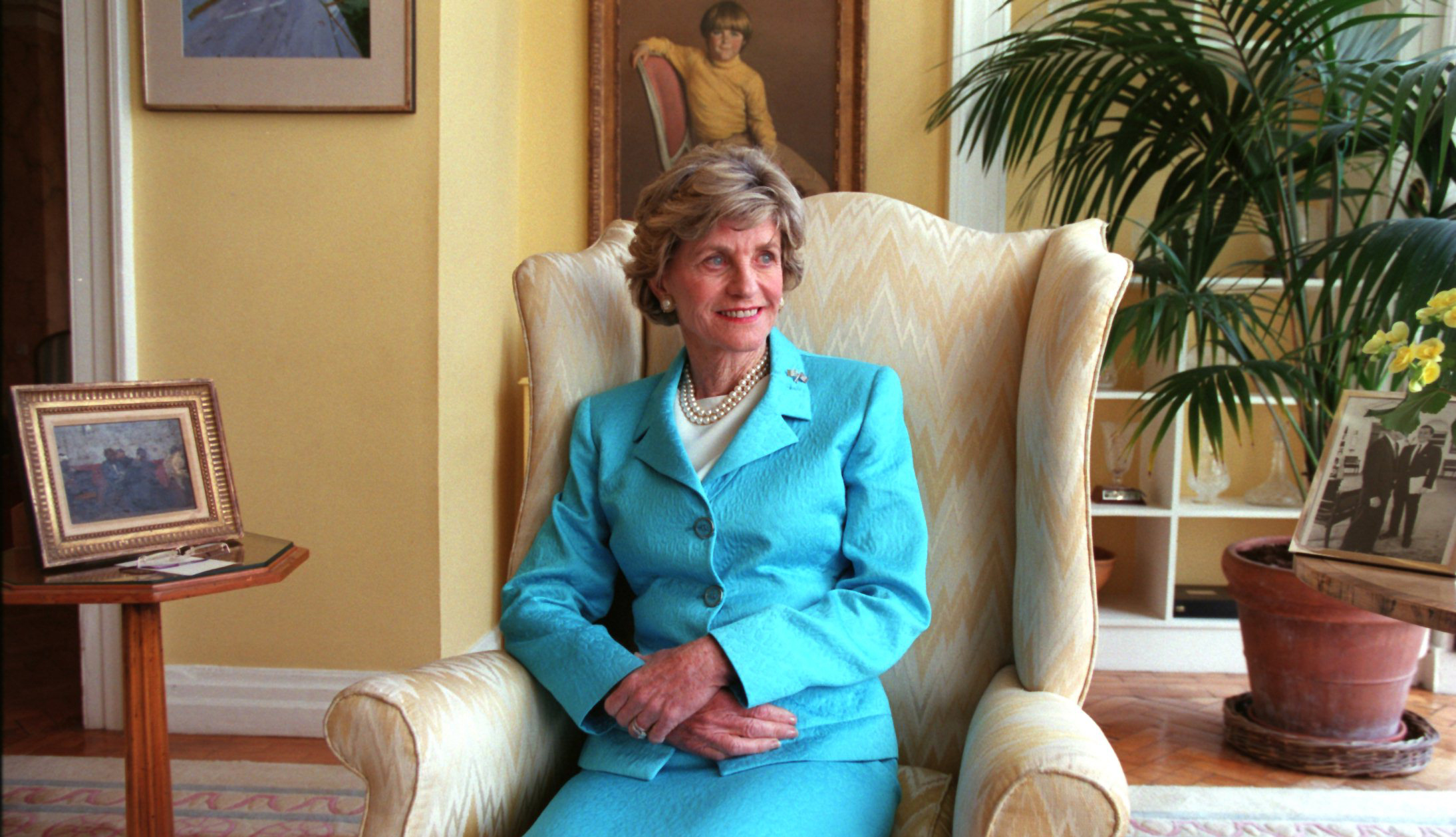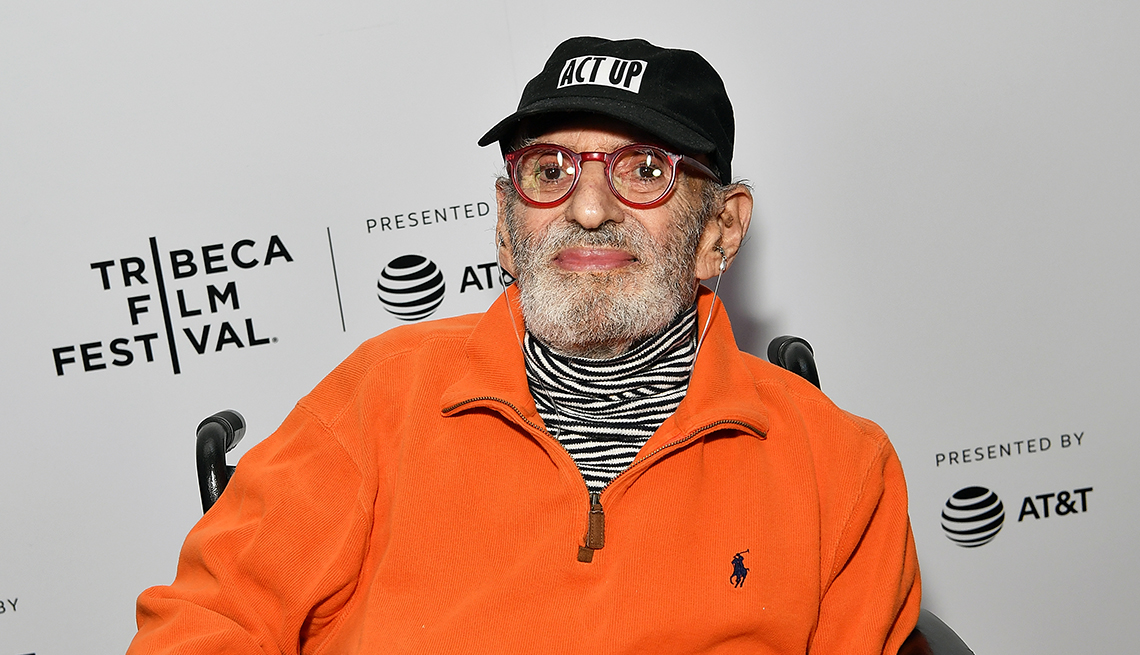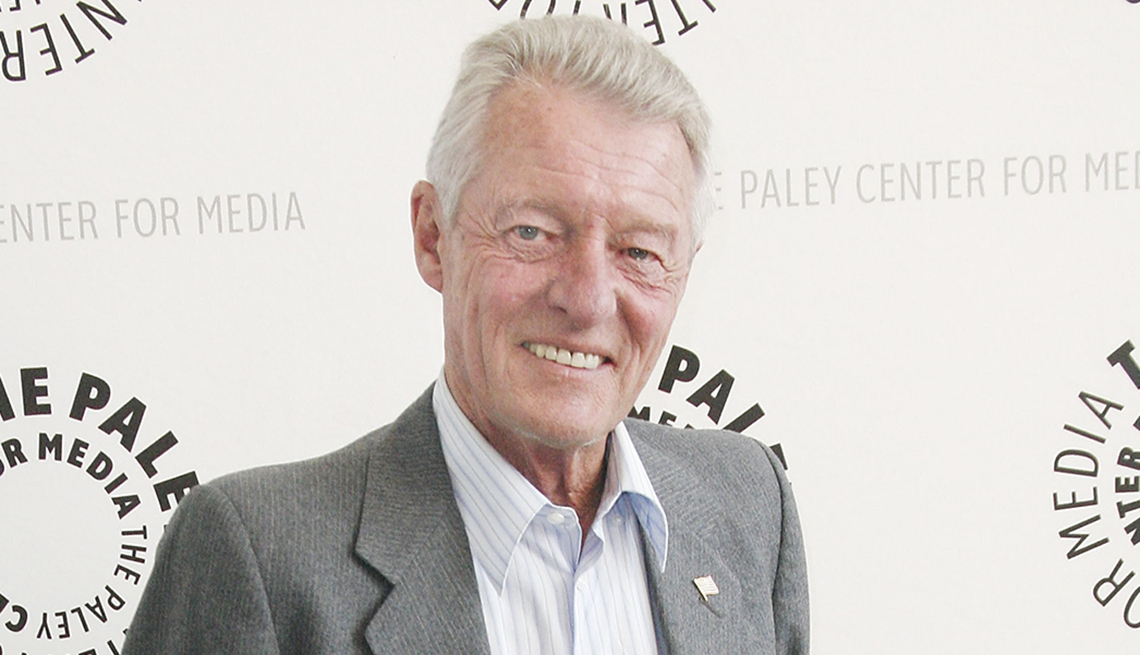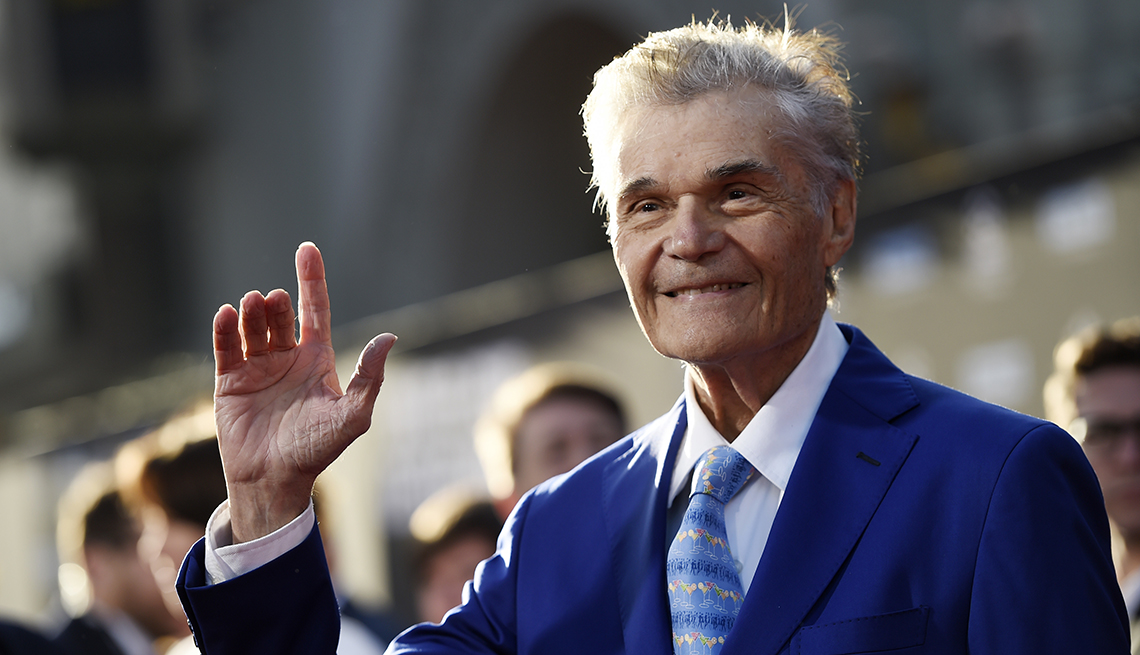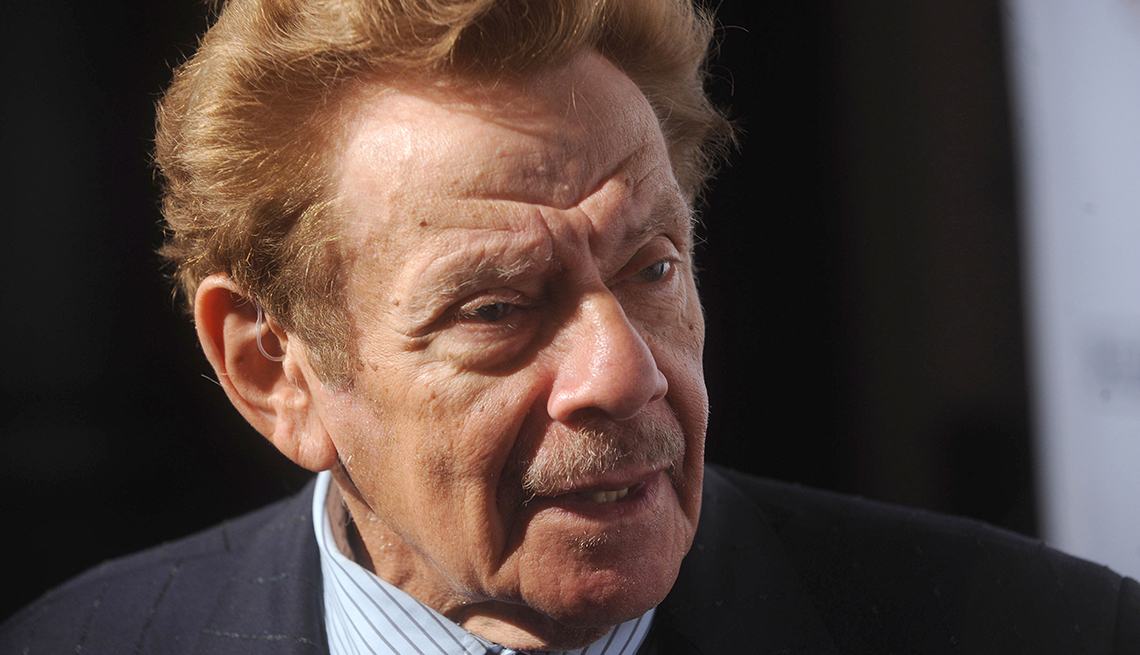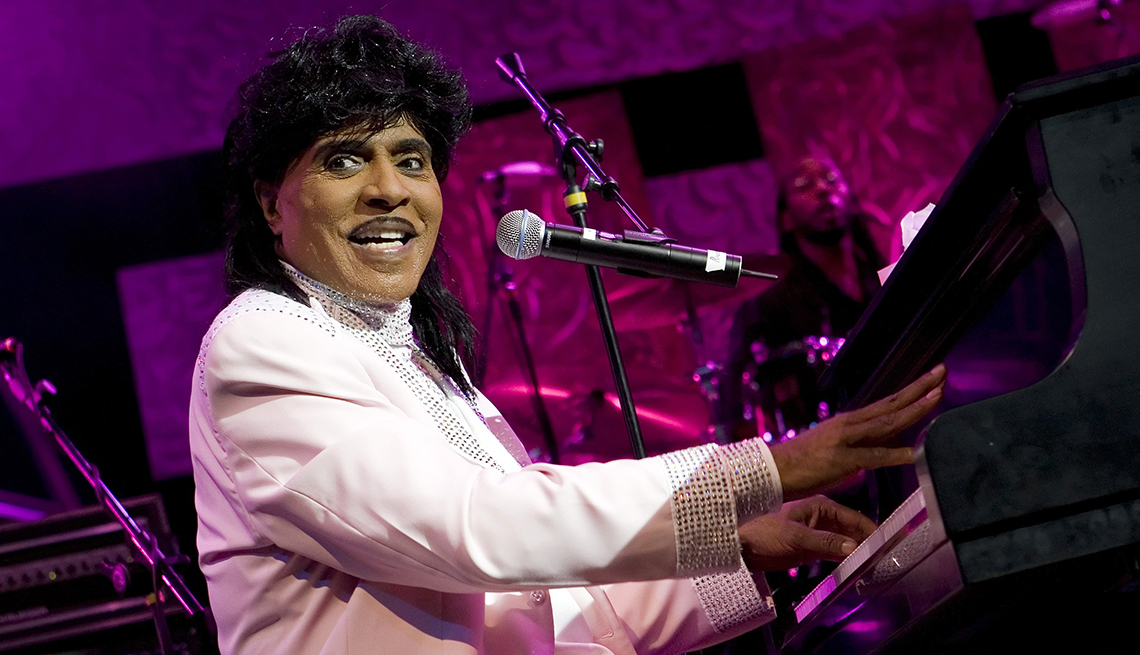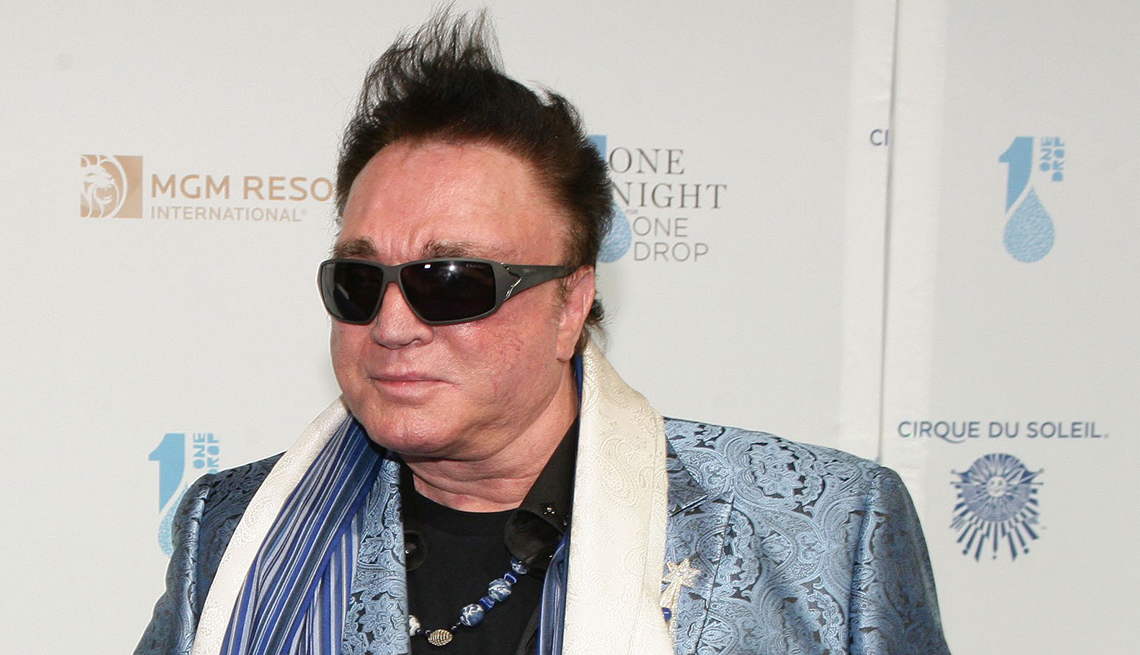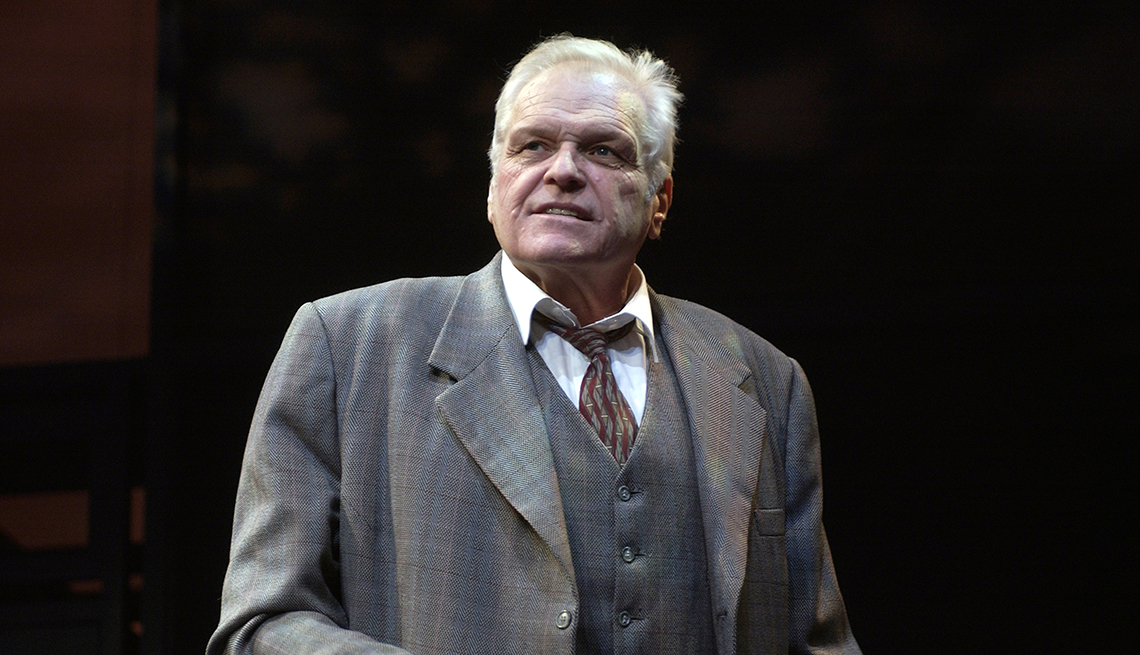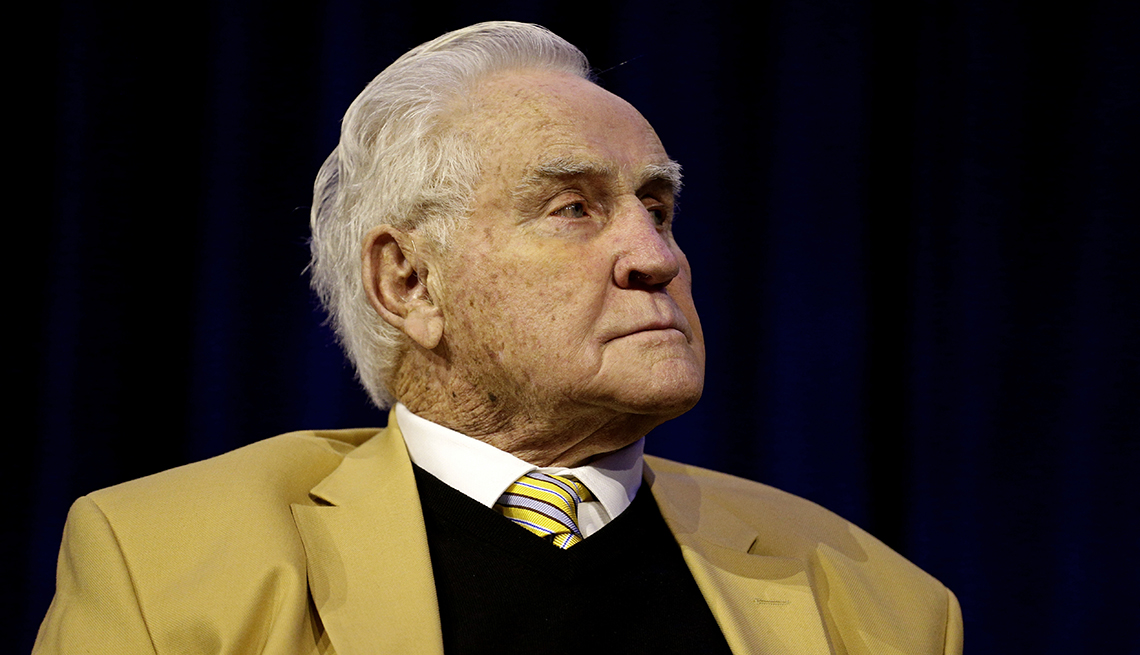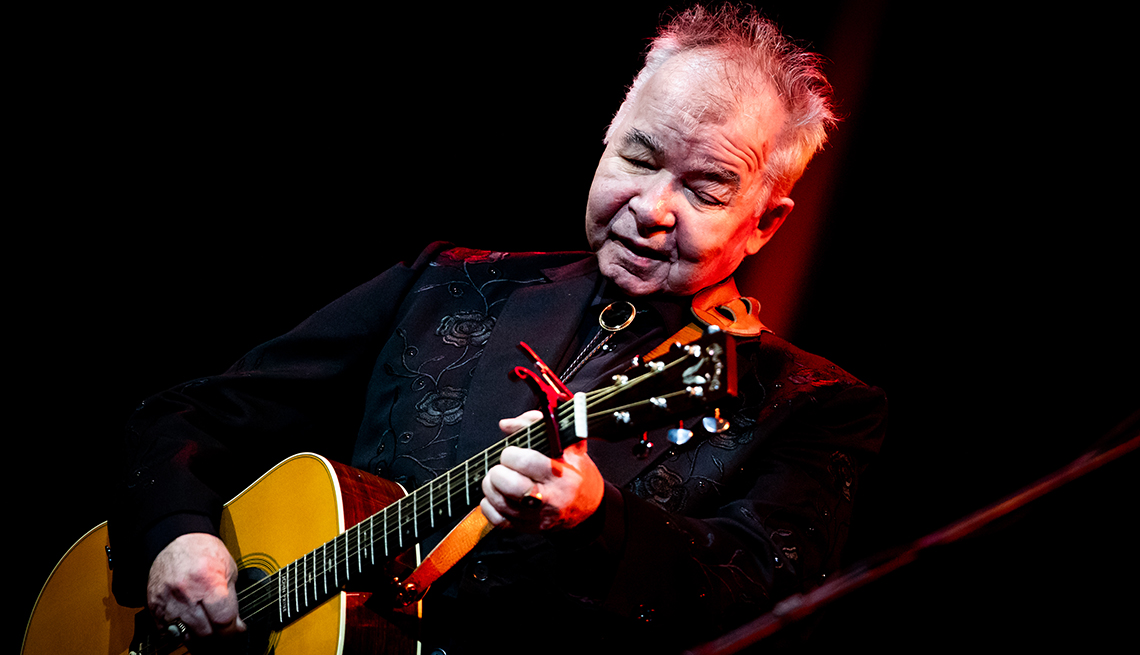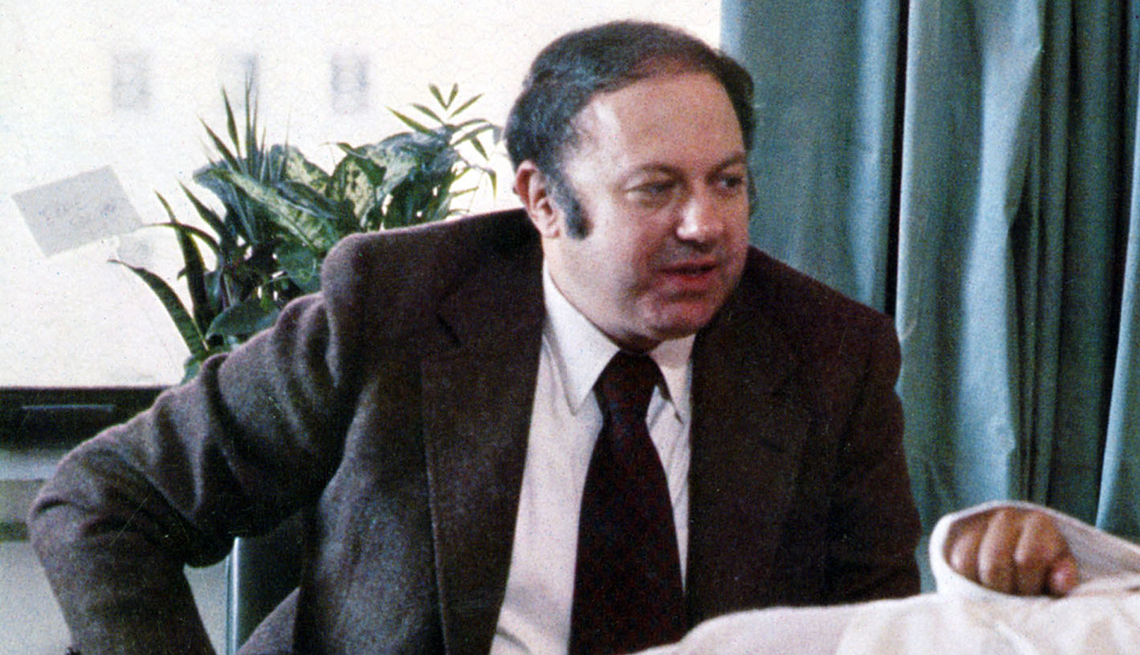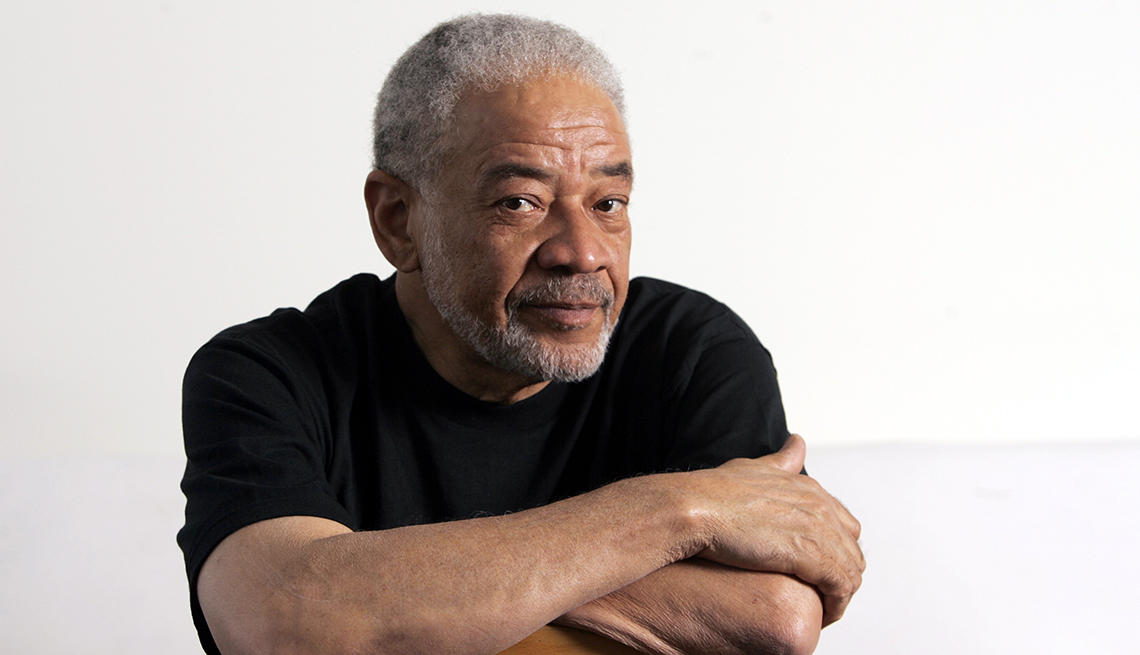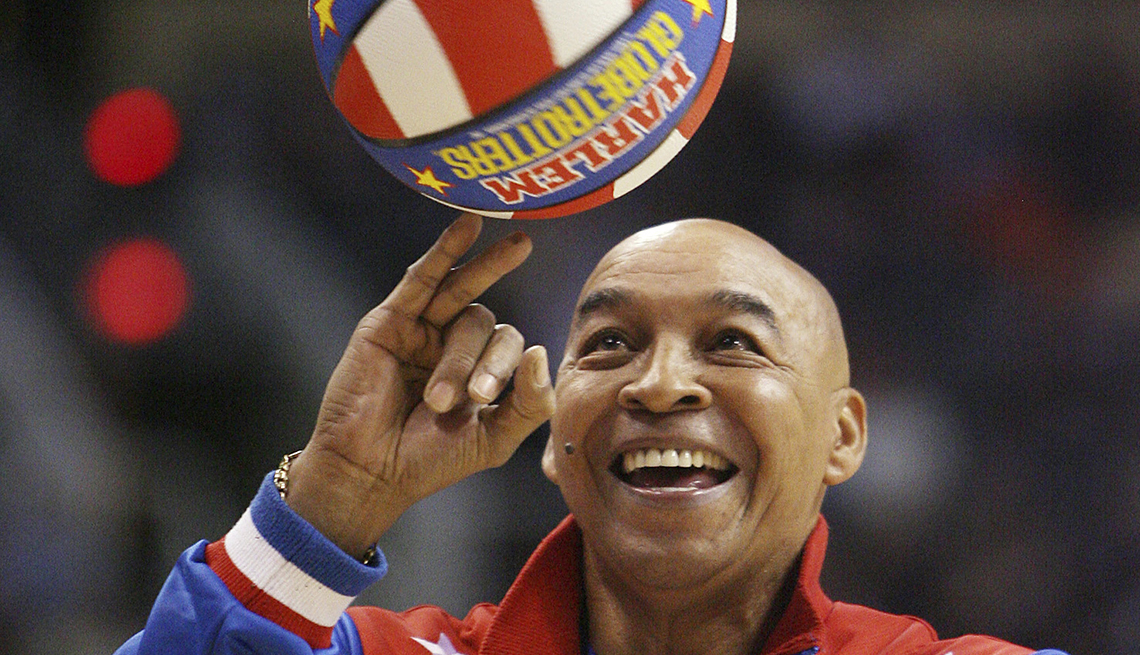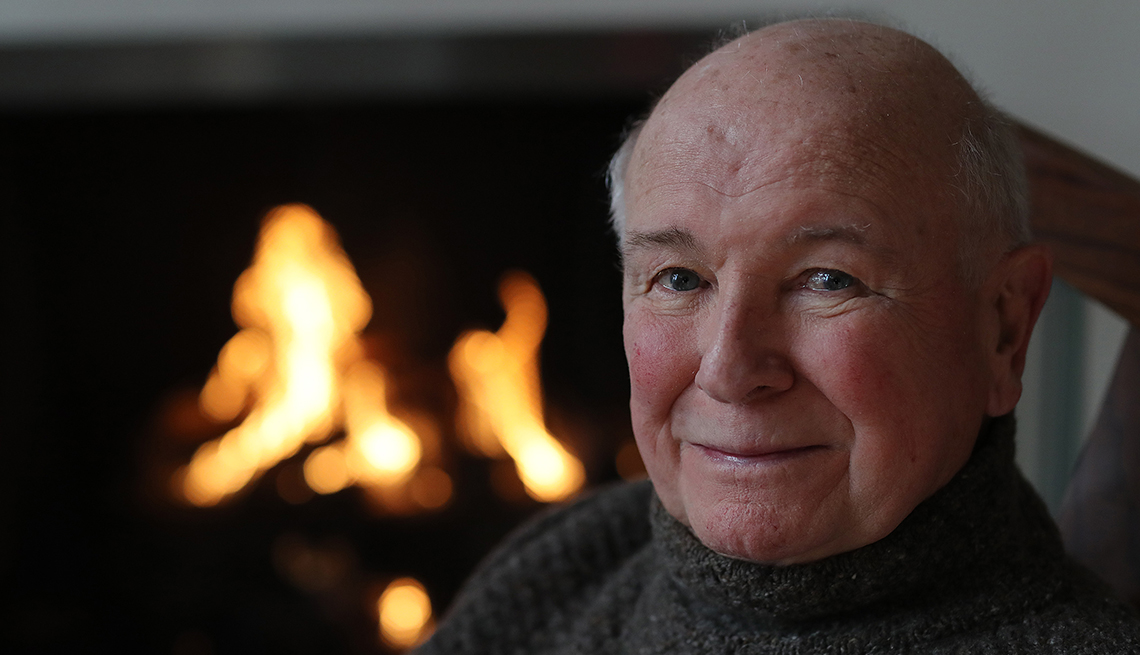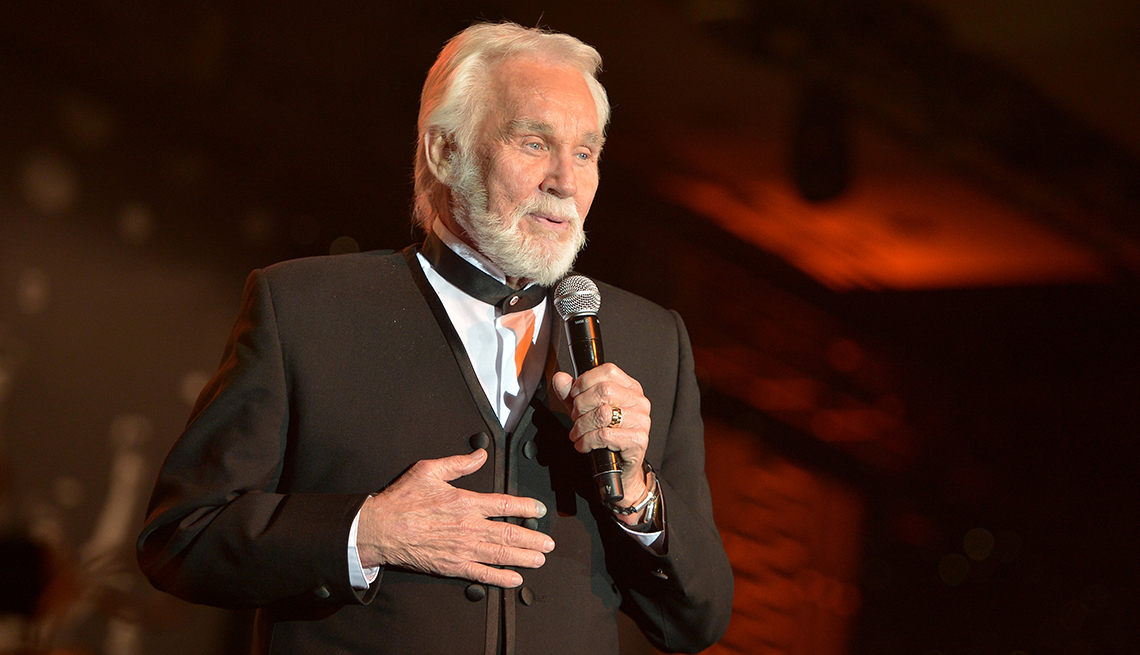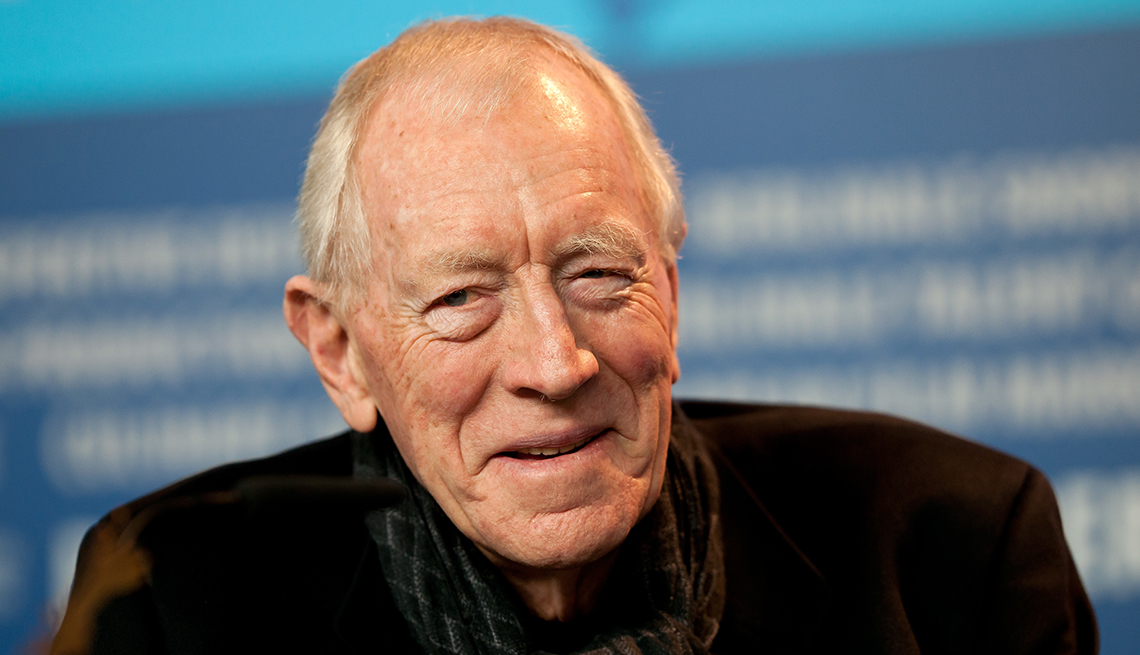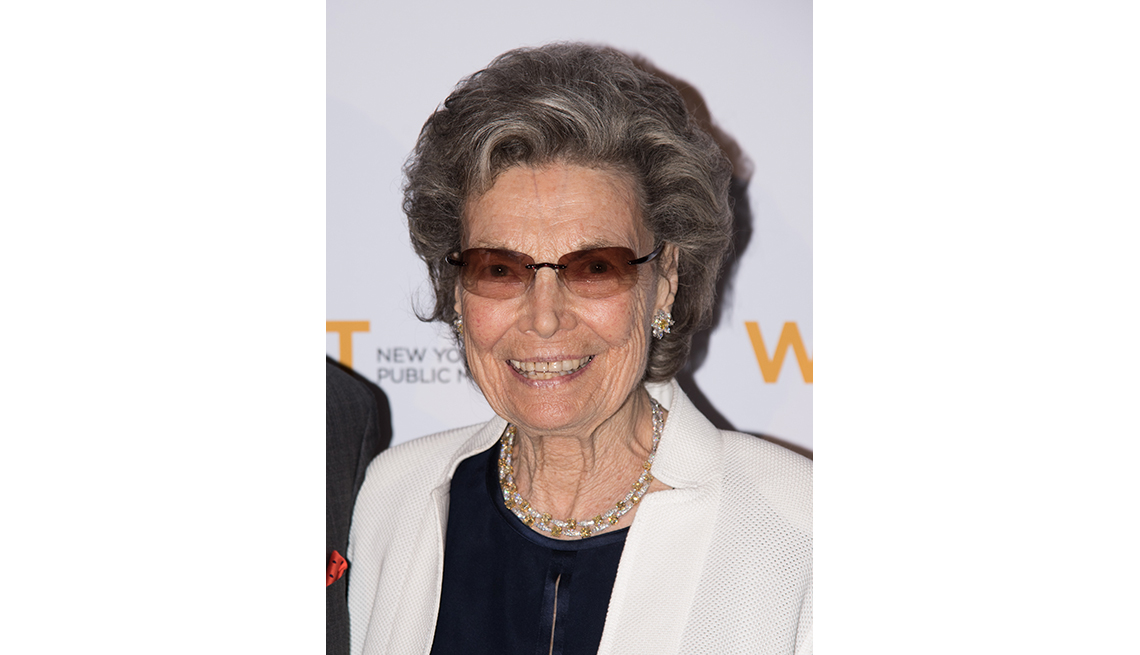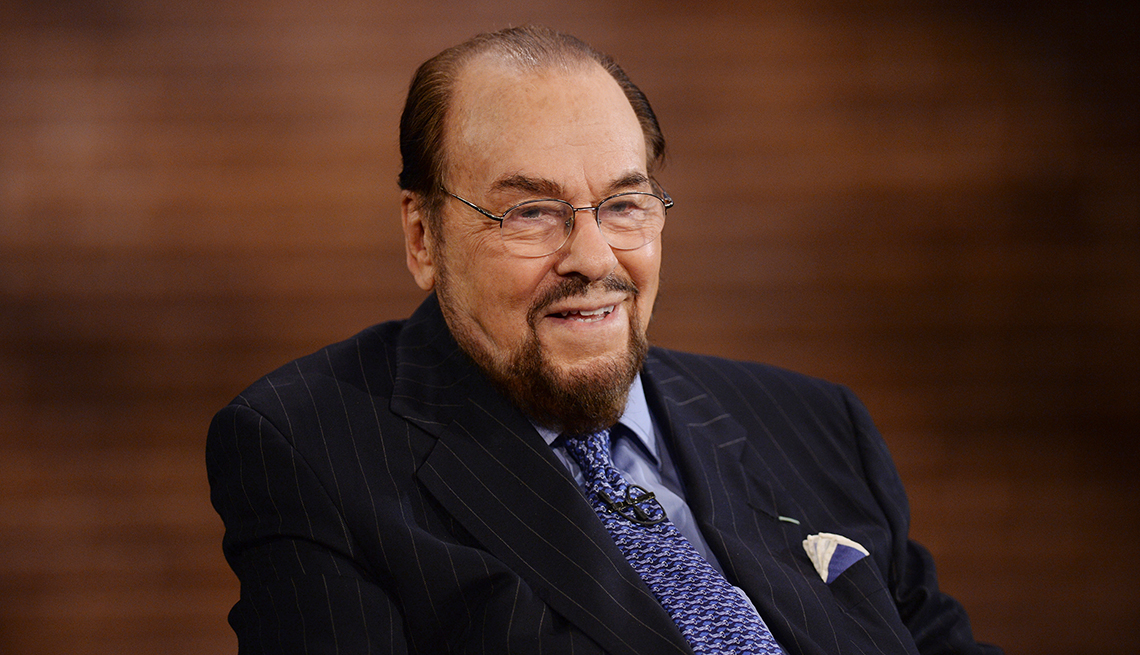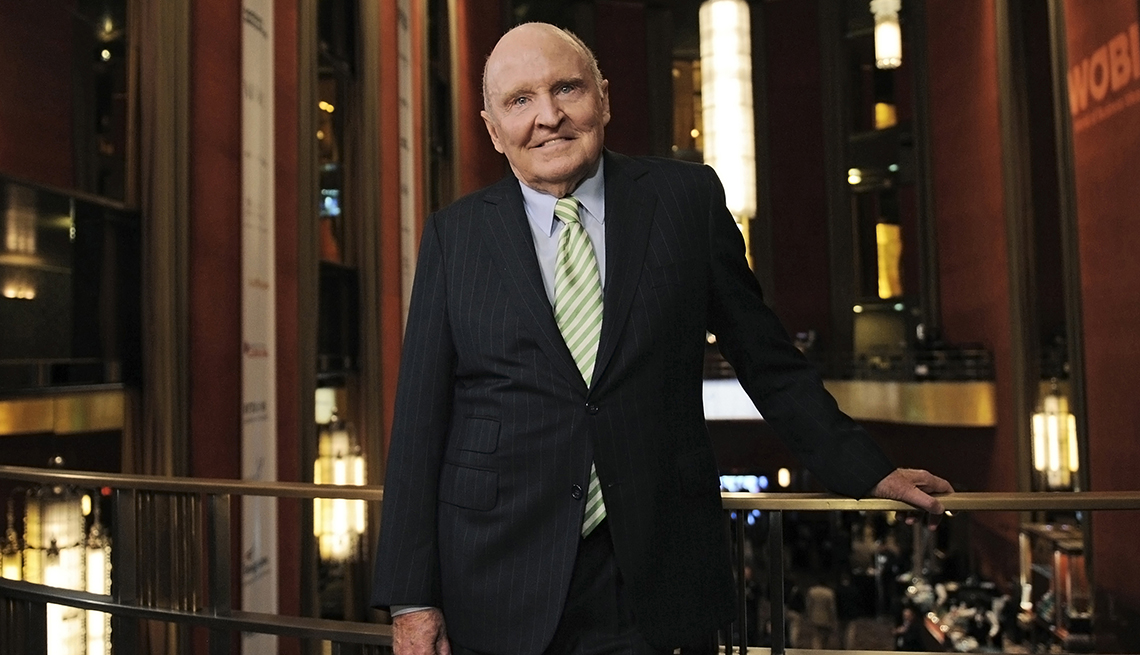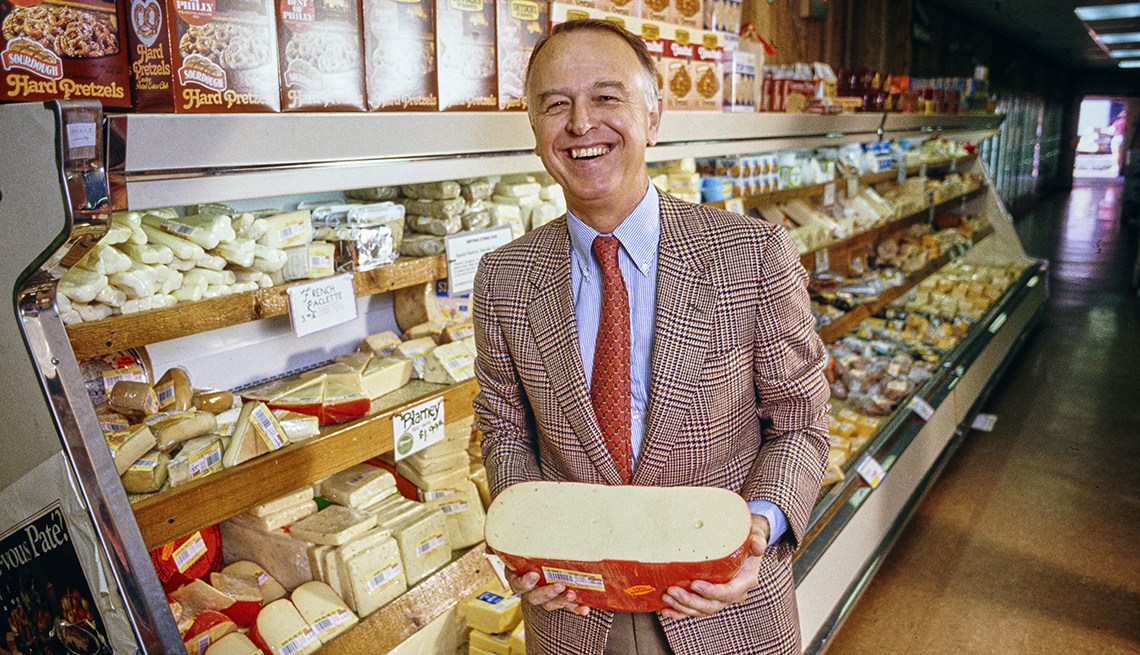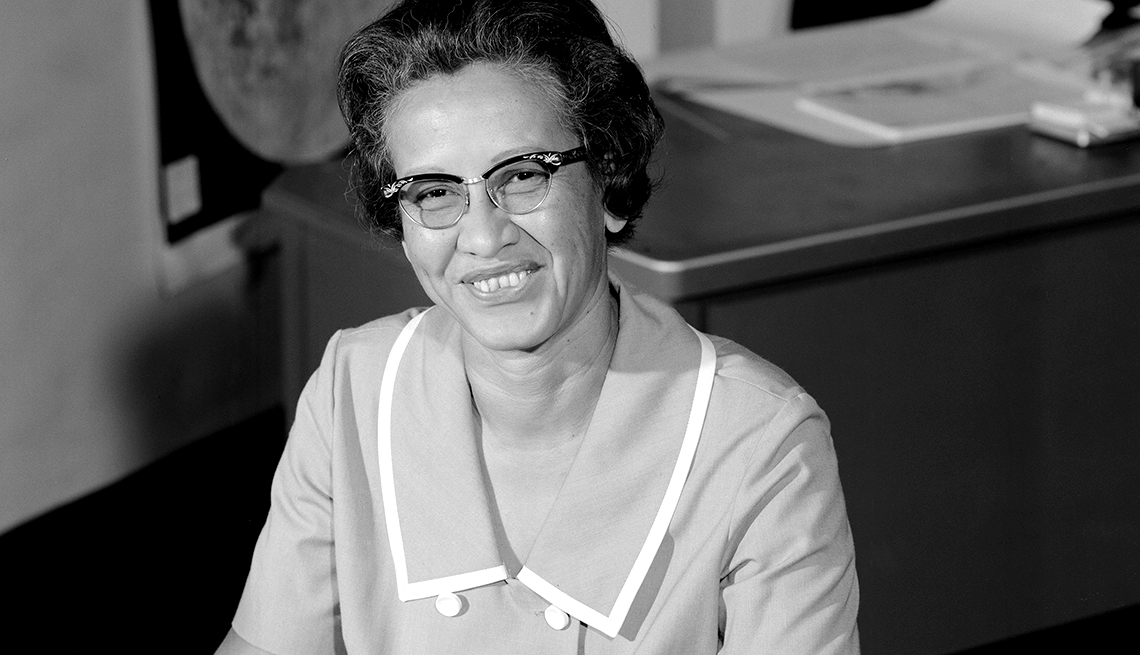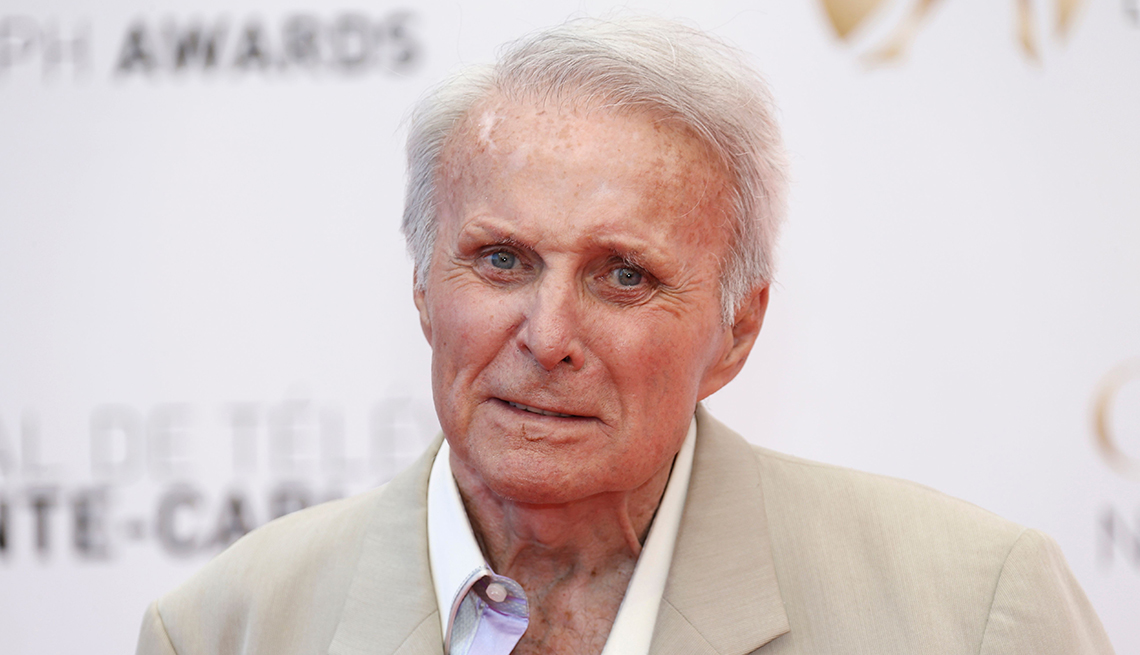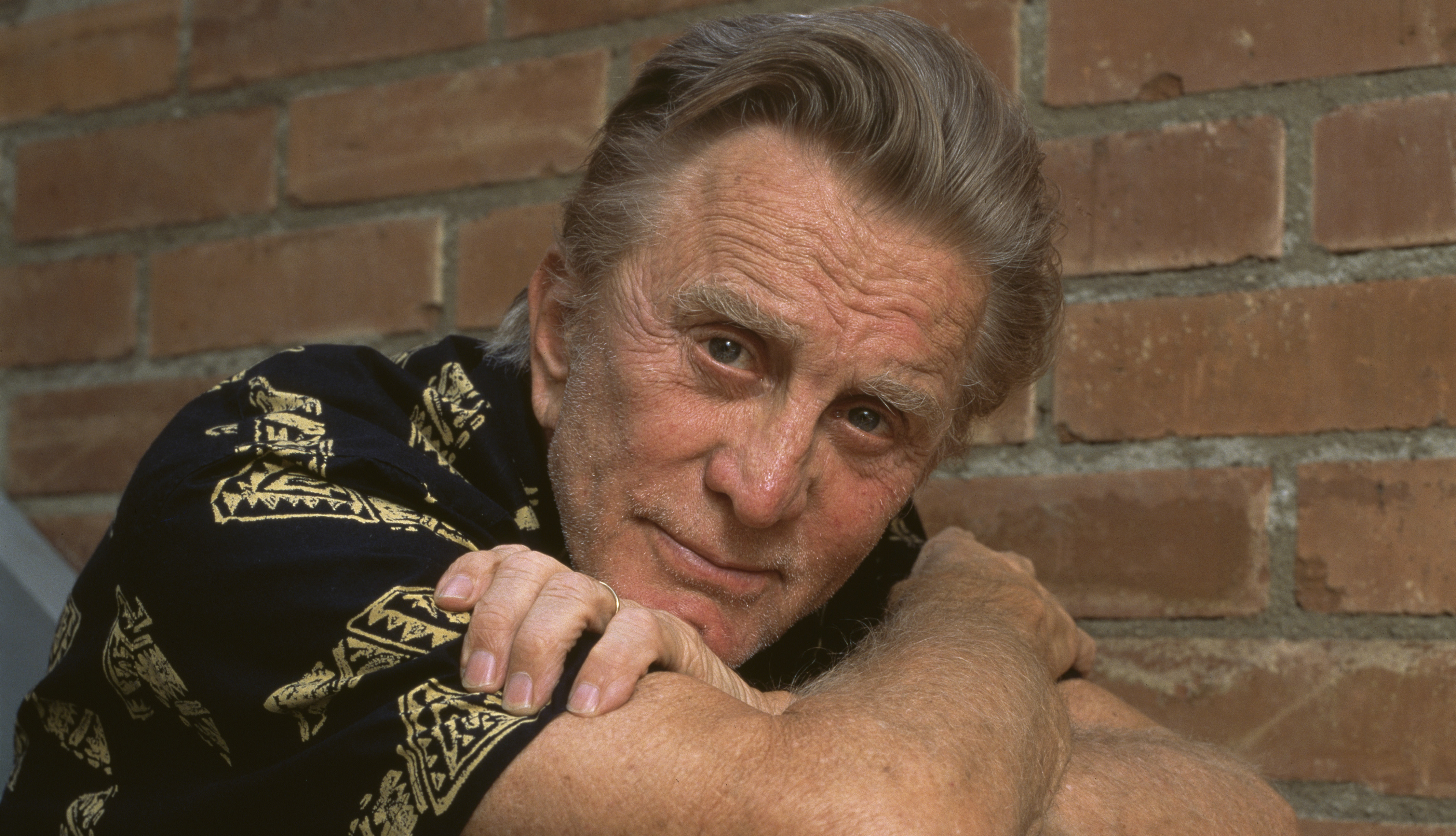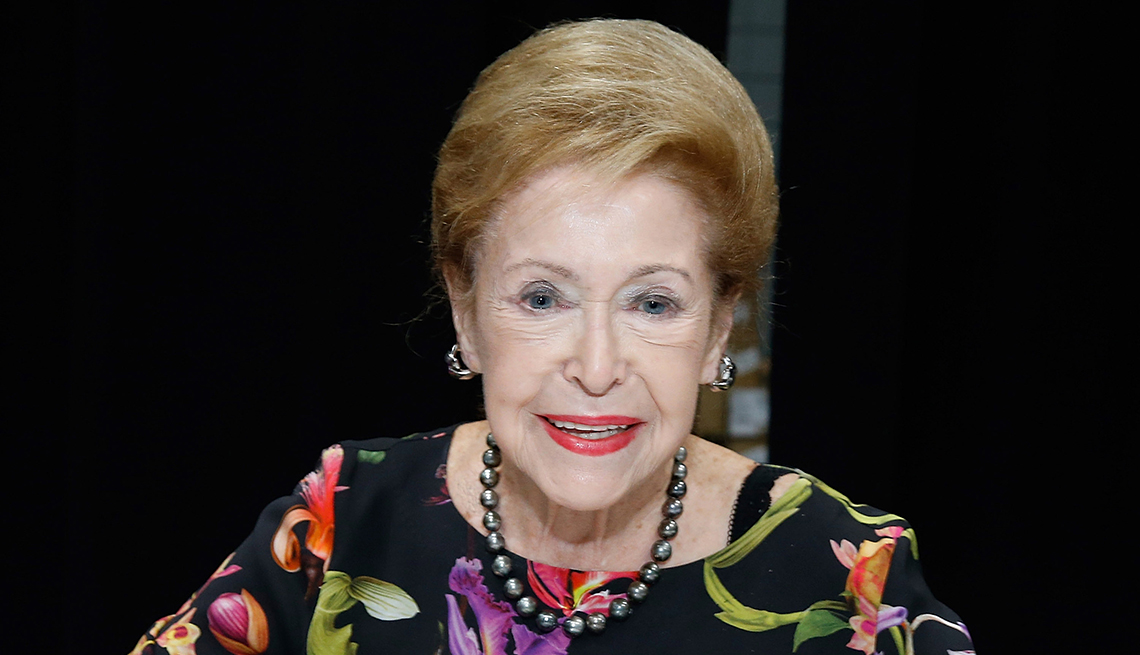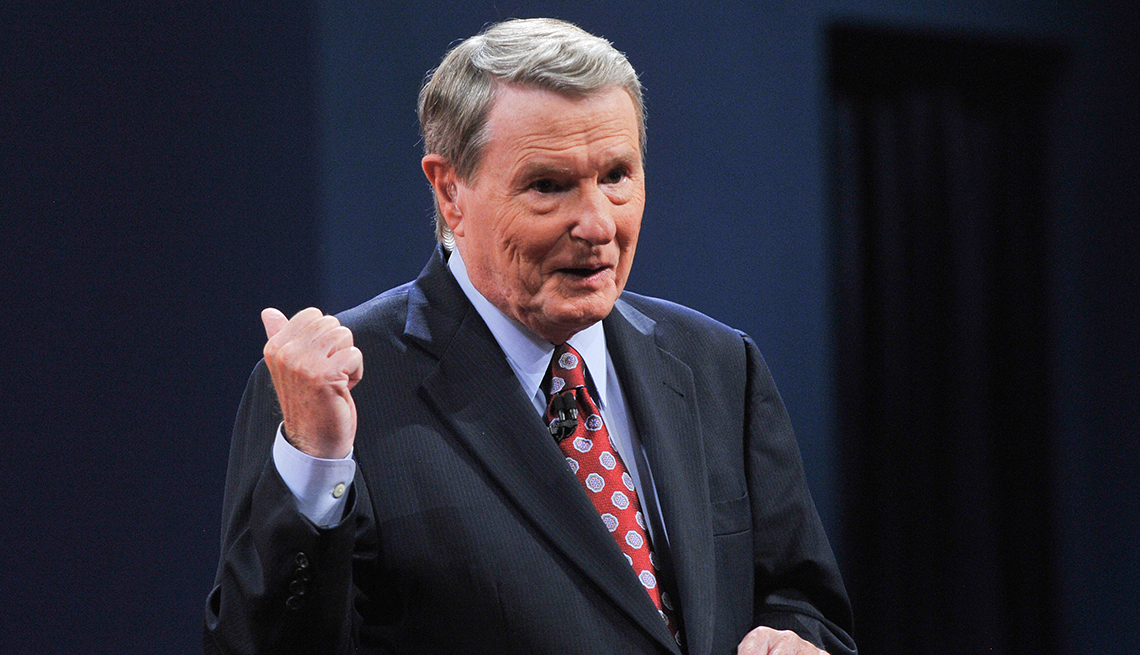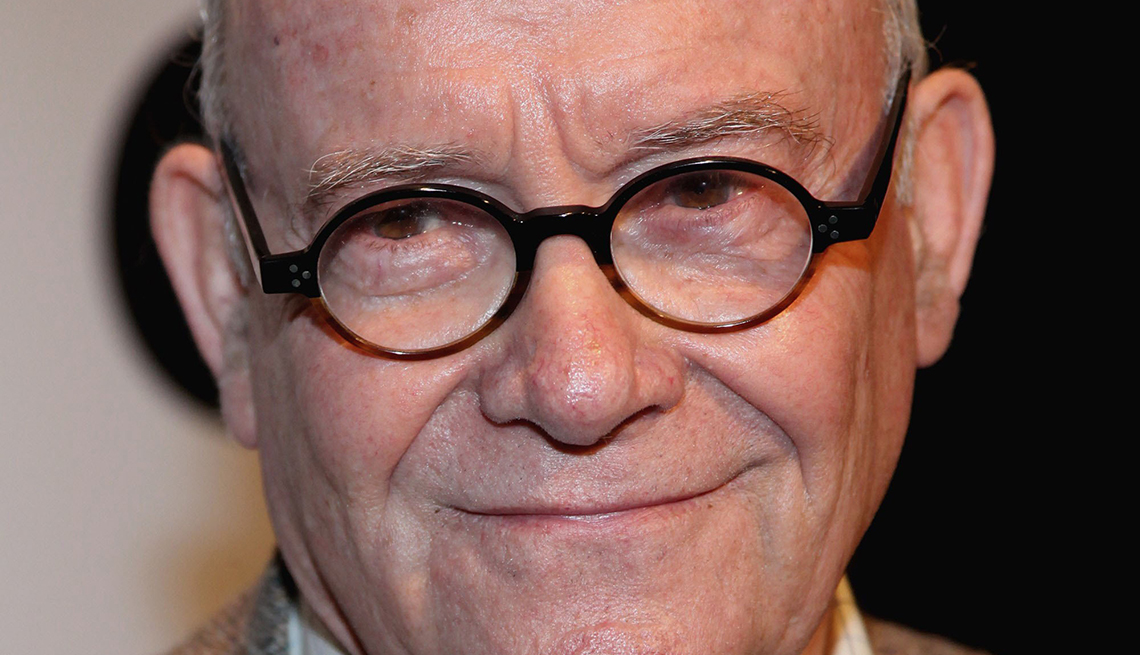Famous People We’ve Lost in 2020
AARP, Updated December 30, 2020
- |
- Photos
-
- 1 of
PHOTO BY: Paul Archuleta
Dawn Wells, actress, 82
(Oct. 18, 1938 — Dec. 30, 2020) Wells, who died of COVID-19 complications, played the pigtailed Mary Ann on the 1960s sitcom Gilligan’s Island. “The core of Mary Ann is really me,” she said. “She was bright, fair-minded and reasonable, and I like to think that’s what I brought to her. She was a little more of a Goody Two-shoes than I am.” When Wells took a fall in 2018, fans raised $197,000 for her rehab. She was honored for her work for Tennessee’s Elephant Sanctuary and created Wishing Wells Collections, which makes clothes for older people with mobility issues.
-
- 2 of
PHOTO BY: MARCO BERTORELLO/Getty Images
Pierre Cardin, fashion designer, 98
(July 2, 1922 — Dec. 29, 2020) As a child gazing at the night sky, Cardin imagined stars as women in glittering gowns. His eye-popping, often futuristic fashions made a galaxy of stars look more stellar: the cast of the 1946 film Beauty and the Beast, the Beatles, Jeanne Moreau, Jackie Kennedy and Lady Gaga. Though his Nehru jackets, flying-saucer toques and bubble dresses didn’t last long past their shocking debuts, he permanently revolutionized haute couture as mass-market wearable art for regular folks worldwide. “Fashion is always ridiculous, seen from before or after,” he said, “But in the moment, it’s marvelous.”
-
- 3 of
PHOTO BY: Mark Cunningham/Getty Images
Phil Niekro, baseball pitcher, 81
(April 1, 1939 — Dec. 26, 2020) Phil Niekro was a master and, perhaps, the best-known deliverer of the knuckleball, a rarely seen pitch that darts and floats unpredictably. Over 24 seasons, Niekro racked up 318 wins and five All-Star appearances, with a career leading to membership in the National Baseball Hall of Fame. He flummoxed batters year after year, even though they knew exactly what pitch was coming — but neither they nor Niekro knew exactly where it would end up. The knuckleball is so difficult to throw with consistency that few pitchers master it; however, it has the advantage of being less physically taxing, helping Niekro to continue his MLB career until he was 48. He won 121 games after turning 40, and his 5,404 innings pitched were the most in a century. MLB Commissioner Rob Manfred called Niekro “one of the most distinctive and memorable pitchers of his generation.”
-
- 4 of
PHOTO BY: Icon Sportswire/Getty Images
K.C. Jones, basketball player and coach, 88
(May 25, 1932 — Dec. 25, 2020) K.C. Jones was the unusual top-tier basketball player who also had a highly successful coaching career, wining eight NBA championships as a Boston Celtics player and two more as its coach. Jones, who won an NCAA championship with the University of San Francisco and an Olympic gold medal as a player, developed a reputation as a strong defender during his Celtics playing days, in the 1950s and 1960s. He retired after the 1966–67 season, but then, as coach, led the team to four straight NBA finals in the 1980s. Jones also coached the Washington Bullets to the 1975 NBA finals and was elected to the Naismith Memorial Basketball Hall of Fame. “He was a class act, and everybody knew that. And yet he had a competitive edge that was fierce,” said Danny Ainge, president of basketball operations for the Celtics and a player while Jones was coach.
-
- 5 of
PHOTO BY: Terry Wyatt/Getty Images for CMA
Charley Pride, singer, 86
(March 18, 1934 — Dec. 12, 2020) A pro ballplayer who earned an extra $10 by singing the national anthem, Pride became the first Black country music superstar, with 29 No. 1 hits and more than 50 songs to reach Top 10 status, including the lovelorn hitchhiker’s lament “Is Anybody Goin’ to San Antone?” and “Kiss an Angel Good Mornin.’ ” He also created the Oscar-nominated theme song for the Paul Newman film Sometimes a Great Notion. One of a Mississippi sharecropper’s 11 children, Pride discovered country music on the radio that his dad played while they picked cotton. When he heard about Jackie Robinson, he recalled, “I said to myself, ‘Here’s my way out of the cotton field.’ ” He died of COVID-19 complications. Whoopi Goldberg called him “Americana personified.”
-
- 6 of
PHOTO BY: Kirsty Wigglesworth/AP Photo
John le Carré, novelist, 89
(Oct. 19, 1931 — Dec. 12, 2020) This master storyteller revered by his readers was once a spy named David Cornwell. He began undercover work for the British secret service while studying modern languages at Oxford, and later served in Germany during the Cold War. While still working as a secret agent, he turned to fiction writing, eventually doing so full-time — lucky for the legions of fans who have since been swept away by his novels, including the 1964 bestseller, The Spy Who Came In From the Cold; Tinker, Tailor, Soldier, Spy and other classics. His most famous books were morally complex Cold War espionage tales, often featuring the brilliant, disillusioned George Smiley, said to be the inspiration for Ian Fleming’s James Bond (though le Carré once called Bond less a spy than “some kind of international gangster”). He was known as an unassuming, low-key literary light, and his passing inspired many regrets from fans and fellow writers; among them was the author Robert Harris, who called le Carré, “One of the great postwar British novelists and an unforgettable, unique character.”
-
- 7 of
PHOTO BY: Ron Siddle/The Antelope Valley Press via AP
Chuck Yeager, ‘The Right Stuff’ pilot, 97
(Feb. 13, 1923 — Dec. 7, 2020) Many Americans may not have heard of retired Air Force Brig. Gen. Charles “Chuck” Yeager until The Right Stuff, the Tom Wolfe book and subsequent film about the test pilots who helped launch America’s spaceflight program. But he was already a legend among his colleagues, becoming the first pilot to break the sound barrier, in 1947, and setting a number of other flight records in a long military career. Yeager, who died Dec. 7, was a decorated World War II pilot, shooting down 13 German planes in 64 missions. After the war he became an Air Force test pilot, working in aeronautics programs that led to the space program. He set numerous flight speed records, once flying a X-1A military plane more than 1,600 mph. Yeager returned to serving as a combat pilot during the Vietnam War and also served in several Air Force command positions. Yeager, who grew up in Hamlin, West Virginia, won numerous military honors, including the Distinguished Flying Cross and a Purple Heart. He received the Presidential Medal of Freedom of 1985. “I was just a lucky kid who caught the right ride,” he said in a 1985 speech at the Smithsonian National Air and Space Museum.
-
- 8 of
PHOTO BY: Jesse Grant/WireImage
David L. Lander, actor, 73
(June 22, 1947 – Dec. 4, 2020) A leading light of the 1970s comedy renaissance, Lander was a joke writer for Walter Winchell who won fame as Squiggy, the greasy-spitcurl-wearing best friend of Lenny (his Carnegie Mellon University classmate Michael McKean) on TV’s Laverne & Shirley. “Squiggy is the dumb guy who sees himself as a genius; Lenny is the dumb guy who thinks Squiggy is a genius,” Lander said. Lander was a writer for the hit show, and appeared in classics like Who Framed Roger Rabbit, Used Cars, Scary Movie, and A League of Their Own. He kept his 1984 multiple sclerosis diagnosis secret until his 1999 memoir Fall Down Laughing: How Squiggy Caught Multiple Sclerosis and Didn’t Tell Nobody. But while serving as Goodwill Ambassador for the National M.S. Society, he kept getting good roles, from Twin Peaks to his last performance in 2017’s Goldie and Bear.
-
- 9 of
PHOTO BY: FrankHoermann/SVEN SIMON/picture-alliance/dpa/AP Images
Diego Maradona, soccer legend, 60
(Oct. 30, 1960 — Nov. 25, 2020) When Sports Illustrated decided last year to rank the 50 all-time greatest footballers, Diego Maradona, an Argentine soccer player who led his country’s national team to the 1986 World Cup championship, came out on top — surpassing even Brazilian great Pelé, 80. Even though Maradona retired from a two-decade career in 1997 at age 37 after problems with cocaine use and obesity, Argentines continued to idolize him as the “Pibe de Oro,” or “Golden Boy.” The number 10 he wore on his jersey throughout his career in Argentina, Italy and Spain became synonymous with him. Maradona’s death from a heart attack came two weeks after he was released from a Buenos Aires hospital following brain surgery. The office of Argentina’s president has decreed three days of national mourning. “Everything he was thinking in his head, he made it happen with his feet,” said Salvatore Bagni, who played with Maradona at Italian club Napoli.
-
- 10 of
PHOTO BY: Ben Hider/Getty Images
Alex Trebek, TV host, 80
(July 22, 1940 — Nov. 8, 2020) A witty, intellectual Canadian philosophy major who got his big break — hosting the quiz show Jeopardy! — at 43, Trebek became the only game-show host to present more than 8,200 episodes. Along the way, he earned a Peabody Award, many Emmys, a star on Hollywood Walk of Fame and the thanks of NASA for helping to recruit new astronauts, including the first woman to be sent to the moon. “He was an impartial arbiter of truth and facts in a world that needs exactly that,” said $2,464,216 Jeopardy! winner James Holzhauer. “He nurtured a television safe space for smart people,” said astrophysicist Neil deGrasse Tyson. “Farewell, patron saint of geeks.”
-
- 11 of
PHOTO BY: Courtesy Everett Collection
Sean Connery, actor, 90
(Aug. 25, 1930 — Oct. 31, 2020) Born so poor his crib was a dresser drawer, the tall Scotsman became a star in James Bond movies so popular that, as his 007 successor Daniel Craig said, “He helped create the modern blockbuster.” Connery was a hit in non-Bond roles — The Man Who Would Be King, The Hunt for Red October and The Untouchables, which won him an Oscar — and spurned Blade Runner, The Matrix and what would have been $480 million to play Gandalf in The Lord of the Rings. Voted People magazine’s sexiest man alive at 59, Connery said, “I don’t mind being older.”
-
- 12 of
PHOTO BY: Frederick M. Brown/Getty Images
James Randi, magician and skeptic, 92
(Aug. 7, 1928 — Oct. 20, 2020) As a magician, James Randi once escaped from a straitjacket as he dangled over Niagara Falls, but it was his relentless efforts to debunk mind readers, faith healers and other charlatans that earned him a reputation as the country’s foremost skeptic. Randi, who was born in Toronto, gained national attention as a guest of Johnny Carson on The Tonight Show. In an unforgettable 22-minute segment in 1972, “The Amazing Randi,” as he was known professionally, helped debunk Israeli performer Uri Geller’s claim that he could bend spoons with his mind.
-
- 13 of
PHOTO BY: Al Behrman/AP Photo
Joe Morgan, baseball star and broadcaster, 77
(Sept. 19, 1943 — Oct. 11, 2020) A key part of the Cincinnati Reds’ “Big Red Machine” teams of the 1970s, Joe Morgan followed up a Hall of Fame baseball career with a long second act as a broadcaster. The second baseman won the National League’s Most Valuable Player award twice, was a Gold Glove winner for his defensive prowess five times and made 10 All-Star teams. His Reds won the World Series in 1975 and 1976 — the same two years he was MVP. He played with four other Major League Baseball teams before retiring after the 1984 season. After his baseball career ended, Morgan was a broadcaster for several teams and also worked for ABC, CBS, NBC and ESPN. “I always thought Joe was the best player I ever played with, and that takes in a lot of ground,” former teammate and fellow Hall of Famer Johnny Bench said of Morgan.
-
- 14 of
PHOTO BY: Bryan Smith/ZUMA Wire/Cal Sport Media via AP Images
Whitey Ford, Major League Baseball pitcher, 91
(Oct. 21, 1928 — Oct. 8, 2020) A confounding pitcher and a major part of the powerhouse New York Yankees teams of the 1950s and 1960s, Whitey Ford’s baseball career was filled with success. His Yankees teams played in the postseason for all but two of his first 14 seasons, and he stayed with the squad for his entire 17-year career. Ford was such a centerpiece of the team that he earned the nickname “The Chairman of the Board,” but he was not physically intimidating or overpowering as a thrower. However, his control and ability to throw pitches from many angles helped him win 236 games and get 10 World Series pitching victories and eight Series titles. He won the Cy Young Award for best American League pitcher in 1961 and was named the MVP of the World Series that year as well. Ford also was elected to the Baseball Hall of Fame. “He was the best pitcher I ever saw and the greatest competitor. Whitey won seven out of every 10 decisions and nobody in the history of baseball has ever done better than that,” his late teammate and close friend Mickey Mantle once said of him.
-
- 15 of
PHOTO BY: C Flanigan/Getty Images
Eddie Van Halen, musician, 65
(Jan. 26, 1955 — Oct. 6, 2020) In the ’80s, the Dutch-born Pasadena guitar hero was so omnipresent in popular music that when his group Van Halen’s No. 2 album 1984, with hits like “Panama,” was beaten by Michael Jackson’s album Thriller for the No. 1 spot, even that album featured Van Halen’s sizzling guitar lead on “Beat It.” A rock scholar who respected his elders and got the inspiration for his two-handed guitar tapping technique from watching Led Zeppelin’s Jimmy Page, Van Halen was shocked when he went from fan at an Aerosmith show to performing with them in one year. His colorful style brightened up guitar playing, and now he’s an immortal elder inducted into the Rock & Roll Hall of Fame. Said Alice in Chains guitarist Jerry Cantrell, “There’s Hendrix and there’s Eddie Van Halen.”
-
- 16 of
PHOTO BY: Jeff Roberson/AP Photo
Bob Gibson, Major League Baseball pitching great, 84
(Nov. 9, 1935 — Oct. 2, 2020) A powerful, intimidating pitcher and the bedrock of the St. Louis Cardinals teams of the 1960s, Bob Gibson smashed baseball records and won 251 games in a 17-year career. Gibson twice won the Cy Young Award for being the National League’s best pitcher, won a Most Valuable Player award, was named the World Series MVP after Cardinals won championships in 1964 and 1967, and had one of the most dominating seasons in baseball history in 1968. That year, he won 22 games with an earned run average of 1.12, threw 13 shutouts and struck out a World Series record 17 batters in the opening game. The next year, Major League Baseball lowered the pitcher’s mound and shrank the strike zone, partially in response to the struggles of hitters who faced him. Gibson was a multisport athlete before pursuing a baseball career, even playing a short stint with the Harlem Globetrotters basketball team. “Bob Gibson was arguably one of the best athletes and among the fiercest competitors to ever play the game of baseball,” Cardinals principal owner and CEO William O. DeWitt Jr. said in a statement.
-
- 17 of
PHOTO BY: Paul Morigi/Getty Images
Mac Davis, singer, songwriter and actor, 78
(Jan. 21, 1942 — Sept. 29, 2020) A singer, songwriter and actor whose influence went well beyond his performing career, Davis became a multiplatform star in the 1970s. In 1972, Davis had a number 1 hit with “Baby, Don’t Get Hooked on Me,” and his other well-known songs included “I Believe in Music,” “Stop and Smell the Roses” and “One Hell of a Woman.” The Academy of Country Music named him entertainer of the year in 1974. Davis also wrote songs made famous by other stars, including Elvis Presley’s “A Little Less Conversation” and “In the Ghetto,” and Bobby Goldsboro’s “Watching Scotty Grow.” He hosted an NBC television variety show from 1974 to 1976 and appeared in a number of films, including North Dallas Forty and The Sting II. Davis remained active as a performer and writer for most of his life, even providing occasional voice-overs for the animated series King of the Hill and Johnny Bravo. “He entertained and spread joy to so many people. What a wonderful legacy he left all of us with his music,” country star Reba McEntire said in a statement.
-
- 18 of
PHOTO BY: Michael Tran/FilmMagic
Helen Reddy, singer and actress, 78
(Oct. 25, 1941 — Sept. 29, 2020) The velvet-voiced Australian who cowrote and sang the women’s movement anthem “I Am Woman” in 1971 died at the Motion Picture and Television Home. An impoverished single mom who became the world’s top-selling female singer, she won a Grammy for “I Am Woman” and thanked God, “because she makes everything possible.” She had two other No. 1 hits — “Delta Dawn” and “Angie Baby” — starred in her own TV show and the movies Airport ’75 and Pete’s Dragon, and triumphantly sang “I Am Woman” to massive cheers at the L.A. Women’s March and the Hollywood Bowl in 2017, despite her dementia. She lived to see her story told in the 2020 movie I Am Woman.
-
- 19 of
PHOTO BY: John M. Heller/Getty Images
Gale Sayers, professional football player, 77
(May 30, 1943 — Sept. 23, 2020) A Pro Football Hall of Fame running back whose career was cut short by injuries, Gale Sayers was arguably just as well known for his close friendship with Chicago Bears teammate Brian Piccolo. The two became the first interracial roomates in the history of the National Football League in 1967. Piccolo was diagnosed with cancer in 1969 and died the next year. Their relationship was the basis for Brian’s Song, a 1971 made-for-TV movie that won three Emmys, with Billy Dee Williams playing Sayers and James Caan playing Piccolo. Sayers, whose NFL career began in 1965, retired before the 1972 season; he still holds 20 Bears records and received All-NFL honors five times. After retirement, Sayers worked in the athletic department of the University of Kansas (his alma mater) and then moved on to Southern Illinois University in Carbondale, where he was the athletic director for 15 years. He also founded computer supply and technology consulting firms. “He was the very essence of a team player — quiet, unassuming and always ready to compliment a teammate for a key block. Gale was an extraordinary man who overcame a great deal of adversity during his NFL career and life,” Hall of Fame President and CEO David Baker said in a statement.
-
- 20 of
PHOTO BY: Erin Clark for The Boston Globe via Getty Images
Ruth Bader Ginsburg, U.S. Supreme Court Justice, 87
(March 15, 1933 — Sept. 18, 2020) Ruth Bader Ginsburg spent her entire life as a lawyer and as the second woman appointed to the U.S. Supreme Court — 27 years ago, by President Bill Clinton. She fought passionately for equality for women, earning her the description as the Thurgood Marshall of women’s rights. The frilly lace collar that adorned her black robe belied the steel in her determination. Born in Brooklyn, Ginsburg, who was Jewish, was a rare female law student — first at Harvard Law School and then at Columbia Law School. Unable to get a job at a law firm because she was a woman, Ginsburg became a law professor. Once on the high court, she became well known for her strong dissents in many landmark cases, including the pay-discrimination suit that led to the passage of the Lilly Ledbetter Fair Pay Act. In recent years, Ginsburg, dubbed the Notorious RBG, became a judicial icon and the subject of an Oscar-nominated documentary, RBG, as well as a feature film, On the Basis of Sex, that chronicled her early life.
-
- 21 of
PHOTO BY: VALERY HACHE/AFP via Getty Images
Diana Rigg, actress, 82
(July 20, 1938 — Sept. 10, 2020) A Royal Shakespeare Company member who didn’t watch much TV, Diana Rigg won instant fame in 1964 as slinky, high-IQ sleuth Emma Peel on The Avengers. “She lighted on us like a butterfly on a flower,” said costar Patrick Macnee. “I do think [Emma] was a very, very potent influence in women claiming their place in this world,” said Rigg, who won a Tony Award for Medea, an Emmy as Mrs. Danvers in Rebecca, and four of her nine Emmy nominations as wicked Lady Olenna Tyrell in Game of Thrones. Fans should discover her 1968 film A Midsummer Night's Dream (with costars Helen Mirren, Ian Holm, Judi Dench and other RSC actors) and her hilarious book No Turn Unstoned: The Worst Ever Theatrical Reviews. Her daughter Rachael Stirling said Rigg learned she had cancer in March and “spent her last months joyfully reflecting on her extraordinary life, full of love, laughter and a deep pride in her profession.”
-
- 22 of
PHOTO BY: Jeff Curry/Getty Images
Lou Brock, Major League Baseball outfielder, 81
(June 18, 1939 — Sept. 6, 2020) Known for his speed and base-stealing prowess, Lou Brock was one of the most revered members of the St. Louis Cardinals. During the Baseball Hall of Famer’s 19-year career he accumulated two World Series titles and became a six-time all-star. He retired with a record of 938 career stolen bases; he now ranks second. Before their game on the day of Brock’s death, the Cardinals and Cubs — his first team — held a moment of silence at Wrigley Field. Brock had fought a number of medical conditions in recent years including a battle with myeloma in 2017. “The ability to light the fuse to enthusiasm, to cause teams and myself to play to the limits of their ability. That gives you a purpose for being there. You become a chemist, which makes a team tick. I think I had that ability,” Brock told reporters days after being inducted into the Hall of Fame in 1985.
-
- 23 of
PHOTO BY: AP Photo/Mike Groll
Tom Seaver, Major League Baseball pitcher, 75
(Nov. 14, 1944 — Aug. 31, 2020) A Baseball Hall of Fame pitcher and a key part of the transformation of the New York Mets, Tom Seaver was a dominant player for much of his 19-year career. Seaver was the 1967 National League rookie of the year and helped lead the 1969 “Miracle Mets,” a franchise that had been known for years of failure, to the World Series title. He was an elite pitcher for years after that, finishing his career with 311 wins, a 2.86 ERA and three National League Cy Young awards, which are given annually to the league’s best pitcher. In 2019, his family announced he had been diagnosed with dementia and would retire from public life; the Associated Press reported Seaver died from complications of Lewy body dementia and COVID-19. In a statement, Mets owners Fred and Jeff Wilpon called Seaver “simply the greatest Mets player of all time and among the best to ever play the game.”
-
- 24 of
PHOTO BY: Mitchell Layton/Getty Images
John Thompson, college basketball coach, 78
(Sept. 2, 1941 — Aug. 30, 2020) A legend in college basketball, John Thompson was the first African American to coach an NCAA national championship team when the Georgetown University Hoyas defeated the University of Houston Cougars in 1984. Known as a fierce competitor and taskmaster, Thompson demanded excellence from his players on and off the basketball court. During his 27-year tenure he led Georgetown to 20 NCAA tournaments and six Big East titles, and 97 percent of his players also received their college degrees. Thompson required his players to wear a coat and tie when traveling and would call a 5 a.m. practice if a player cut a class. He was a founding coach of the powerful Big East NCAA conference and was inducted into the Naismith Memorial Basketball Hall of Fame in 1999, the year he left Georgetown. Thompson, who played for two years for the Boston Celtics, coached a number of first-round NBA picks including Patrick Ewing, Alonzo Mourning and Allen Iverson. Ewing took over as Georgetown’s head coach in 2017, replacing Thompson’s son, John Thompson III.
-
- 25 of
PHOTO BY: Dan MacMedan/Getty Images
Chadwick Boseman, actor, 43
(Nov. 29, 1976 — Aug. 28, 2020) Boseman made history as the king of Wakanda in Black Panther, the only superhero film ever nominated for the Best Picture Oscar. He compared the $1.3 billion, Black-cast blockbuster to Star Wars and Lord of the Rings, “but for us … and bigger!” Fired from his first lucrative soap-opera role for objecting to his character’s stereotyping in 2003, he went on to win fame playing some of the most iconic figures in Black American history: Jackie Robinson, James Brown, and Supreme Court Justice Thurgood Marshall. His greatest successes came after his 2016 colon cancer diagnosis, which he kept secret. Viola Davis, his costar in his final performance in Netflix’s upcoming production of August Wilson’s masterpiece, Ma Rainey's Black Bottom, wrote, “May flights of angels sing thee to thy heavenly rest.”
-
- 26 of
PHOTO BY: Lisa Lake/Getty Images
Gail Sheehy, journalist and author, 83
(Nov. 27, 1937 — Aug. 24, 2020) A journalist who profiled celebrities and world leaders from Margaret Thatcher to Hillary Clinton and both presidents Bush, Gail Sheehy wrote her most influential work in 1976: Passages: Predictable Crises of Adult Life. The best seller dissected the different stages of growth and aging, including “the forlorn 40s” and “the Refreshed (or Resigned) 50s,” and encouraged readers to embrace each decade’s challenges and find inspiration and renewal throughout. Readers appreciated her frankness; when we turn 50, she wrote, “there is a new warmth and mellowing. Friends become more important than ever, but so does privacy … the motto of this stage might be ‘No more bullshit.’ ” A longtime writer for both New York magazine and Vanity Fair, she ran with the Passages concept, penning The Silent Passage: Menopause (1991), Passages in Caregiving (2010) and her 2014 memoir Daring: My Passages. She recently talked to AARP The Magazine about how her Cavalier King Charles spaniel, Chollie, kept her spirits up during the pandemic.
-
- 27 of
PHOTO BY: AP Photo/Bebeto Matthews
Pete Hamill, journalist, 85
(June 24, 1935 — Aug. 5, 2020) Hamill began as a high-school dropout sheet-metal worker, then became a celebrated reporter who covered the Vietnam War, Europe and Robert Kennedy’s assassination — he helped subdue the killer. He became the editor of the New York Post and the New York Daily News. True to his roots in the Brooklyn streets, he ascended literary heights in over 20 books, and helped fellow celebrity writer Tom Wolfe invent the New Journalism. Hamill wrote about news, art, baseball, comic books, boxing and music, winning a Grammy for liner notes to Bob Dylan’s Blood on the Tracks. Before his marriage to writer Fukiko Aoki, he dated Shirley MacLaine, Jacqueline Onassis and Linda Ronstadt. Still writing well in 2019 despite dialysis, a pacemaker, four heart stents and two broken hips, he said he never did Twitter, explaining, “Time is the most urgent four-letter word when you’re my age.”
-
- 28 of
PHOTO BY: Imeh Akpanudosen/Getty Images
Wilford Brimley, actor, 85
(Sept. 27, 1934 — Aug. 1, 2020) A high school dropout, blacksmith, professional cowboy and bodyguard for Howard Hughes, Brimley got his showbiz start shoeing horses for TV westerns. His breakthrough roles were on the popular family series The Waltons and in the film The China Syndrome, which the New York Times said he almost stole from star Jane Fonda. He became an iconic character actor in roles as crotchety old men, playing Robert Redford’s baseball coach in The Natural, portraying a retiree decades older than he actually was in Cocoon, and serving as the menacing chief of security at a prestigious law office who takes on Tom Cruise in The Firm. Excelling in scary and kindly roles alike, he was also a beloved pitchman for Quaker Oats, whose sales he reportedly increased by $100 million in one year, and appeared often in diabetes ads. Diagnosed with the illness (which he famously pronounced “diabeetus”) in 1979, Brimley earned a lifetime achievement award from the American Diabetes Association. He owned a ranch and liked working with horses more than doing his Hollywood day job, saying, “If I thought I could make as much money raising cattle, you wouldn’t be able to tear me away from the ranch with an 80-ton crane.”
-
- 29 of
PHOTO BY: AP Photo/Thibault Camus
Olivia de Havilland, actress, 104
(July 1, 1916 — July 26, 2020) Olivia de Havilland was the oldest living Oscar-winning actor and the last surviving cast member of 1939’s Gone With the Wind, which earned her the first of five Academy Award nominations. She won the Oscar for best actress for 1946’s To Each His Own and for 1949’s The Heiress, and she was nominated for Hold Back the Dawn and The Snake Pit. At age 27, she sued the Warner Bros. movie studio in a case that freed all actors from long-term restrictive contracts. And at 102, de Havilland sued the cable network FX over her depiction in the 2017 miniseries about actresses Joan Crawford and Bette Davis, Feud: Bette and Joan. A Paris resident who enjoyed a glass of Champagne daily (weekly after age 100), she took the editor of the weekly news magazine Paris Match as her second husband. Renowned for her integrity both on-screen and off, she kept on her wall a framed letter from Barack Obama that read: “As a young man, I must confess I had a crush on [your] saintly Melanie Wilkes in Gone With the Wind.”
-
- 30 of
PHOTO BY: Bennett Raglin
Regis Philbin, television personality, 88
(Aug. 25, 1931 — July 24, 2020) A beloved entertainer whose career in television spanned 50 years, Regis Francis Xavier Philbin was perhaps best known for his jovial presence on the morning talk shows he co-hosted — Live! With Regis and Kathie Lee and Live! With Regis and Kelly. From 1988 until he retired in 2011, Philbin started each morning interviewing celebrities, commenting on current events and riffing about his personal life with his co-hosts, Kathie Lee Gifford and, later, Kelly Ripa. Philbin was also the first host of the wildly popular game show Who Wants to Be a Millionaire, which debuted in 1999. In 2006, Philbin hosted the first season of America’s Got Talent. In the 1950s, Philbin landed a job parking cars at a Los Angeles television station before he worked his way in front of a camera. He has been recognized by the Guinness Book of World Records for spending nearly 17,000 hours on television — shattering the record held by long-time broadcaster Hugh Downs. “I had my years of struggling. Some of my shows failed miserably, and I was upset by it and it dented my confidence. But I never stopped. I kept going for it,” Philbin told AARP Bulletin in a 2011 interview. His longtime friend and TV partner, Gifford was among those sharing her grief on social media. She wrote on Twitter: “There has never been anyone like him. And there never will be.”
-
- 31 of
PHOTO BY: Getty Images
John R. Lewis, congressman and civil rights icon, 80
(February 21, 1940 — July 17, 2020) John R. Lewis, who died of pancreatic cancer, was the last surviving speaker of the 1963 March on Washington. Lewis, 23 years old at the time, was the youngest “Big Six” leader to address the thousands-strong demonstration. In his early life he was also known as one of the original Freedom Riders, as Chairman of the Student Nonviolent Coordinating Committee, and for his role in the 1965 marches from Selma to Montgomery, AL. One of those marches famously left him bloodied by white police officers on the Edmund Pettus Bridge. Lewis first won elected office in 1981, as an at-large member of the Atlanta City Council. In 1986, he was elected as U.S. Representative for Georgia’s 5th District. He served 33 years in that role, and remained throughout his time in Congress a staunch advocate for equality, and for peace. Lewis announced his cancer diagnosis on December 29, 2019, and spent the final months of his life witnessing, if from the sidelines, seismic changes within American society. He viewed the recent protests for racial justice as a continuation of his life’s work, and expressed pride in demonstrators carrying on his legacy of what he long referred to as “good trouble.” In a statement upon Lewis’ death, President Barack Obama reflected, “He loved his country so much that he risked his life and his blood so that it might live up to its promise. And through the decades, he not only gave all of himself to the cause of freedom and justice, but inspired generations that followed to live up to his example.” Lewis is survived by his one son, John-Miles.
-
- 32 of
PHOTO BY: Stephane Cardinale - Corbis/Corbis via Getty Images
Kelly Preston, actress, 57
(Oct. 13, 1962 — July 12, 2020) Preston, who died of breast cancer, broke out in the 1985 teen comedy Mischief, won wider fame as Arnold Schwarzenegger’s wife in the 1988 hit Twins and married her leading man in The Experts, John Travolta (he flew her to Paris in his jet for a midnight wedding, in 1991). A professional highlight was 1996’s Jerry Maguire, in which she more than held her own opposite Tom Cruise, as his heartless girlfriend. She was on a recent comeback after deemphasizing her career to raise her family. She costars with Judi Dench in the forthcoming midlife-crisis movie Off the Rails and spoke with her high school classmate Rod Lurie (The Outpost) about playing the Ann-Margret role in a remake of 1986’s 52 Pick-Up. Her daughter Ella Travolta wrote, “You have a light that never ceases to shine and that makes anyone around you feel instantly happy.”
-
- 33 of
PHOTO BY: Erika Goldring/WireImage
Charlie Daniels, musician, 83
(Oct. 28, 1936 — July 6, 2020) A musician who will be forever associated with the song “The Devil Went Down to Georgia,” Daniels was more than just a fiddler. His Nashville career dated back to the 1960s, when he worked as a session musician, songwriter and producer. Daniels played on Bob Dylan’s Nashville Skyline, produced music for the rock band the Youngbloods and released his initial album in 1970. His band first hit the Top 40 in 1973 with “Uneasy Rider,” but it was the 1979 release of his signature song that brought him a massive wave of fans. The song earned a Country Music Association Award for single of the year and a Grammy for best country vocal performance by a duo or group. “I love the way ‘Georgia’ sounds. It’s so poetic. It wouldn’t be the same if it were ‘The Devil Went Down to New Hampshire,’ New York or Tennessee,” he told the Wall Street Journal in 2017. Daniels continued to tour into his 80s; he hosted 20 editions of his Volunteer Jam festivals over more than 40 years, with the last in 2018.
-
- 34 of
PHOTO BY: Michael N. Todaro/FilmMagic
Hugh Downs, television broadcaster, 99
(Feb. 14, 1921 — July 1, 2020) A man who logged more than 10,000 hours on television, Hugh Downs had a career that spanned cohosting ABC’s 20/20 newsmagazine, stints on early morning and late-night shows, and hosting the game show Concentration. Downs partnered with Barbara Walters on 20/20, whom he met while he was a host on the Today show and she was a writer. He was also known for being a sidekick and announcer for Jack Parr on the Tonight Show. Downs called 20/20 the “pinnacle of everything I had done.” Aside from his landmark interviews with the Dalai Lama, the Rev. Billy Graham and Barry Goldwater, his fascination with science led him to the South Pole, an encounter with a great white shark off the waters of Australia and a ride on a NASA aircraft that simulated the weightlessness of space. Downs began his career in radio, and one of his first TV jobs was as an announcer on the Kukla, Fran and Ollie puppet show.
-
- 35 of
PHOTO BY: Gabriel Olsen/FilmMagic
Carl Reiner, actor, 98
(March 20, 1922 — June 29, 2020) Starting out as a teenage actor paid $1 a week by the Works Progress Administration, Bronx, New York, native Carl Reiner won fame as a writer-performer on Sid Caesar’s 1950s TV shows, alongside Woody Allen, Neil Simon and Mel Brooks. Reiner’s autobiographical sitcom Head of the Family was rejected, but when it was recast starring Dick Van Dyke in his place, it won showrunner Reiner five Emmys. He directed Steve Martin’s first hit film, The Jerk, and acted in hit TV series in his 80s and 90s, winning his last Emmy in 1995 by reviving his Dick Van Dyke Show character, Alan Brady, on Mad About You. When Reiner won the Mark Twain Prize for American Humor, in 2000, Jerry Seinfeld said, “Twain should be so lucky to be here today so he could get the Carl Reiner Prize.” In a 2017 interview, Reiner told AARP the secret to his success: “Enjoy the good times, and walk away from the bumps. That’s it.”
-
- 36 of
PHOTO BY: Cambridge Jones/Getty Images
Ian Holm, actor, 88
(Sept. 12, 1931 — June 19, 2020) A founding actor of England’s Royal Shakespeare Company, Holm was wounded by Laurence Olivier in a stage sword fight and later won the Olivier Award for playing King Lear; the Queen knighted both men, and Holm won a Tony award in Harold Pinter’s The Homecoming. But a bout of stage fright drove him to the movies, where he made his mark both in blockbusters (as Bilbo Baggins in The Lord of the Rings and as an android in Alien) and in countless hit art films (The Sweet Hereafter, Garden State, and Robin and Marian). Nobody played Napoleon better than Holm, 5-foot-6, did in Time Bandits and two other films. He earned an Oscar nomination as an eccentric — and winning — track coach in Chariots of Fire.
-
- 37 of
PHOTO BY: Boston Globe/Getty Images
Jean Kennedy Smith, ambassador to Ireland, 92
(Feb. 20, 1928 — June 17, 2020) The last surviving sibling of President John F. Kennedy, Jean Kennedy Smith was named ambassador to Ireland by President Clinton in 1993 and played a key role in Ireland’s peace process. Her controversial efforts to get a visa for Sinn Fein leader Gerry Adams to visit the United States was credited with his participation in talks that led to a cease-fire and eventual peace accord. The eighth of nine Kennedy children, Smith received honorary citizenship from Ireland for “distinguished service to the nation” and was awarded the U.S. Presidential Medal of Freedom in 2010. Smith’s diplomatic service was part of a Kennedy tradition. Her father, Joseph P. Kennedy, had been the ambassador to Great Britain and her niece, Caroline Kennedy, was ambassador to Japan during the Obama administration. Smith’s philanthropic activities included founding Very Special Arts, a program that supports artists with physical or mental disabilities.
-
- 38 of
PHOTO BY: Tim P. Whitby/Getty Images for Serpentine Galleries
Christo, artist, 84
(June 13, 1935 — May 31, 2020) Christo (full name: Christo Vladimirov Javacheff) crafted a career as an artist with ambitious projects that quickly disappeared soon after they were erected and often involved wrapping large structures in fabric. Among other well-known projects, in 2005, he installed more than 7,500 saffron-colored vinyl gates in New York’s Central Park. He also wrapped the Reichstag in Berlin in fabric with an aluminum sheen in 1995. His late wife Jeanne-Claude was a regular collaborator, and their $26 million The Umbrellas project erected 1,340 blue umbrellas in Japan and 1,760 blue umbrellas in Southern California in 1991. They also wrapped the Pont Neuf in Paris, the Kunsthalle in Bern, Switzerland and a Roman wall in Italy. “I like to be absolutely free, to be totally irrational with no justification for what I like to do,” he said. “I will not give up one centimeter of my freedom for anything.”
-
- 39 of
PHOTO BY: Slaven Vlasic/Getty Images for Tribeca Film Festival
Larry Kramer, AIDS activist, playwright, 84
(June 25, 1935 — May 27, 2020) Larry Kramer was an iconic activist and writer who waged a dogged campaign to force a national response to AIDS in the 1980s and 1990s. Kramer, who was diagnosed in 1989 with HIV, the virus that causes AIDS, was a controversial and polarizing figure. He founded the Gay Men’s Health Crisis only to be ejected from the group a year later for his too aggressive and antagonistic approach. But health experts, notably Anthony Fauci, M.D., veteran director of the National Institute of Allergy and Infectious Disease, credited Kramer with playing an “essential role” in getting drugs to combat AIDS developed and approved by the Food and Drug Administration. As a screenwriter and playwright, Kramer’s work ranged from an acclaimed Oscar-nominated adaptation of D.H. Lawrence’s Women in Love to plays with a gay theme. At his death, Kramer was at work on a play centered on the COVID-19 crisis.
-
- 40 of
PHOTO BY: Paul Archuleta/FilmMagic
Ken Osmond, actor, 76
(June 7, 1943 — May 18, 2020) Osmond turned in what was supposed to be a one-episode role as Wally Cleaver’s best friend, Eddie Haskell, on TV’s Leave It to Beaver in 1957. But Eddie soon was promoted to a series regular — a character so iconic that he inspired Bart Simpson. (Simpsons creator Matt Groening conceived of his show as Son of Eddie Haskell.) Jerry Mathers, who played Beaver, called Eddie “the poster child for sneaky, rotten kids everywhere.” Typecast, Osmond quit showbiz to become an LAPD motorcycle cop, and he survived two shootings. After which, he quit the force and revived the Eddie character in The New Leave It to Beaver (1984-1989). Osmond stayed in touch with costar Mathers (and with the LAPD colleague who saved his life from the gunman) for the rest of his life.
-
- 41 of
PHOTO BY: Chris Pizzello/Invision/AP
Fred Willard, actor, 86
(Sept. 18, 1933 — May 15, 2020) One of the nicest guys in Hollywood and beloved by many colleagues after appearing in hundreds of TV episodes and in dozens of movies, Willard earned four Emmy nominations during his seven-decade career (Everybody Loves Raymond and Modern Family). He won fame as a dim talk-show cohost on 1977’s Fernwood 2 Night, as the Air Force officer giving Spinal Tap’s band a base tour (convincing, since Willard was a Virginia Military Institute grad and Army vet), and as a clueless dog-show judge in Best in Show, which earned him best supporting actor nominations from the National and New York film critics’ groups. His final role is as Steve Carell’s dad on Netflix’s upcoming Space Force. Carell calls him “The funniest person that I’ve ever worked with.”
-
- 42 of
PHOTO BY: Dimitrios Kambouris/WireImage
Phyllis George, sportscaster, Miss America, 70
(June 25, 1949 — May 14, 2020) A Texas-born beauty queen, sportscaster, political spouse and entrepreneur, Phyllis George had an unlikely trajectory — and pretty face — that kept her in the public eye throughout the 1970s and ’80s. In 1970, the young Miss Texas was crowned Miss America, playing “Raindrops Keep Falling on My Head” on piano for the talent competition; she’s called her pageant success “the springboard to everything I’ve done in my life.” CBS Sports soon snapped her up to be a sportscaster, despite her admitted lack of sports expertise: She was a novelty among the all-male anchors hosting the network’s pregame football show The NFL Today. George’s celebrity was cemented in 1979, when she married soon-to-be Kentucky Gov. John Y. Brown Jr., builder of the Kentucky Fried Chicken empire, and served as first lady for four years (they’d later divorce). More recently she created a line of beauty products and another of fresh chicken dinners, Chicken by George.
-
- 43 of
PHOTO BY: Brad Barket/Getty Images
Jerry Stiller, actor, 92
(June 8, 1927 — May 11, 2020) Stiller helped propel the 1960s renaissance in Jewish American humor, along with his Irish Catholic wife, Anne Meara; their inter-ethnic comedy act, Stiller and Meara, was featured on the Ed Sullivan Show 36 times. They took their kids, Amy and Ben Stiller, on the road — “We’d be performing with Gladys Knight, and they’d be in the pool with the Pips,” he recalled. He bought Ben a movie camera at age 10, and grownup Ben cast his dad in his Zoolander films. He scored notable roles in the thriller The Taking of Pelham One Two Three and the musical comedy Hairspray, but his greatest fame (and an Emmy nomination) came from playing Jason Alexander’s irritable dad on Seinfeld, often yelling “Serenity now!” but finding none, and a similar role on The King of Queens.
-
- 44 of
PHOTO BY: Matt Stroshane/Getty Images
Little Richard, singer, 87
(Dec. 5, 1932 — May 9, 2020) When Richard Penniman, who performed as Little Richard, claimed “I created rock ‘n’ roll!” he was only slightly exaggerating. Though Elvis Presley deserves a bit of credit too, few tunes rocked pop culture more than Little Richard’s 1955 “Tutti Frutti.” His falsetto shrieks, flamboyant attire and wild lyric “Awopbopaloobop Alopbamboom” inspired everyone from the Beatles (who shared a stage with him when they were unknown), to Jimi Hendrix and Elton John. Penniman reminded Prince that he wore purple first, and he outranks him in rock’s royalty. He was in the first group of Rock & Roll Hall of Fame inductees, and won a lifetime achievement award at the 1993 Grammys.
-
- 45 of
PHOTO BY: James Atoa/Everett Collection
Roy Horn, magician, 75
(Oct. 3, 1944 — May 8, 2020) Horn, whose animal-filled magic show made him and partner Siegfried Fischbacher the most successful live act in Las Vegas history, died of COVID-19 complications in the town where Siegfried & Roy grossed up to $45 million per year. Horn, the animal-training expert in the duo, survived a 2003 attack onstage by a 400-pound tiger, which bit his neck and dragged him offstage. “I can’t even tell you the feeling [when] a full-grown tiger licks your face,” Horn once said. “But … one swipe of his paw can decapitate you.” Horn told Fischbacher, “If I would have to do it again, I would do everything the same way. I regret nothing.”
-
- 46 of
PHOTO BY: Robbie Jack/Corbis via Getty Images
Brian Dennehy, actor, 81
(July 9, 1938 — April 15, 2020) Beefy and 6-foot-3, Dennehy got his start as a football player for Columbia University. But a coach who also taught drama steered him to Yale’s drama school and over 100 film roles, six Emmy nominations, and Tony Awards for parts in the two greatest American plays, Long Day’s Journey Into Night and Death of a Salesman. Instantly recognizable yet versatile, he could play both gentle giants and killer John Wayne Gacy. He crafted brilliant character-actor performances opposite Sylvester Stallone (First Blood), Kevin Costner (Silverado), Harrison Ford (Presumed Innocent) and James Spader (The Blacklist). In his last decade, he worked on about 11 films or shows per year. He credited his success to his coach and acting mentor, and to football. He said, “The thing about football, aside from all the aches and pains that it gave me, was the sense that life is tough and hard and really painful, but you can deal with it.”
-
- 47 of
PHOTO BY: AP Photo/Charlie Riedel
Don Shula, football coach, 90
(Jan. 4, 1930 — May 4, 2020) The winningest coach in National Football League history and the only one to coach a team through a perfect season, Shula’s long career was filled with success. He won 347 games as a coach with the Miami Dolphins and Baltimore Colts, spending 26 seasons in Miami and winning two Super Bowls. Inducted into the Pro Football Hall of Fame in 1997, Shula gained a reputation as a coach who could turn around losing squads and bring them into the ranks of the NFL elite. His Dolphins went 17-0 in 1972 and won their first Super Bowl title, then successfully defended the title the next year with a 15-2 record. Only two of his Dolphins teams had losing records. Shula retired after the 1995 season but remained a Miami icon, founding a successful steakhouse chain and overseeing a charitable foundation. “He brought the winning edge to our franchise and put the Dolphins and the city of Miami in the national sports scene,” the team said in a statement.
-
- 48 of
PHOTO BY: Rich Fury/Getty Images
John Prine, singer and composer, 73
(Oct. 10, 1946 — April 7, 2020) The son of a Kentucky coal miner, Prine, who died of the coronavirus, was a Chicago-area mailman who moonlighted as a songwriter. He sang extraordinary songs about miners and other ordinary Americans. In 1970, Chicago movie critic Roger Ebert left a screening because the popcorn was salty, went to a Prine concert and launched his career with a review raving about Prine’s tunes like “Sam Stone” and “Angel From Montgomery.” He was called the new Bob Dylan, and Dylan said, “Prine’s stuff is pure Proustian existentialism. Midwestern mind trips to the ninth degree.” Prine shaped the Americana movement and survived cancer for 22 years. The album he released at 71, The Tree of Forgiveness, scored the biggest debut of his career. Bonnie Raitt, who made “Angel From Montgomery” a big hit, called him tender, wise and astute, “mixed with his homespun sense of humor — it was probably the closest thing for those of us that didn’t get the blessing of seeing Mark Twain in person.”
-
- 49 of
PHOTO BY: AMBLIN ENTERTAINMENT/Ronald Grant Archive/Mary Evans/Everett Collection
Allen Garfield, actor, 80
(Nov. 22, 1939 — April 7, 2020) You don’t know his name, but you could make a first-rate film festival from the many immortal hits of character actor Garfield, who died of coronavirus. He costarred with Robert De Niro in Greetings, Woody Allen in Bananas, Ronee Blakley in Nashville, Robert Redford in The Candidate, Gene Hackman in The Conversation, Eddie Murphy in Beverly Hills Cop II, Jim Carrey in The Majestic, and Mark Harmon on Chicago Hope. He began as a Golden Gloves boxer, to fend off New Jersey thugs, and a Newark Star-Ledger sportswriter. He said, “I’d be like the Jewish Hemingway, right? Box and also write about boxing.” Accepted as a writer-director at Lee Strasberg’s The Actors Studio, he wound up an actor highly regarded by Oscar-winning directors including Francis Ford Coppola and Roman Polanski.
-
- 50 of
PHOTO BY: AP Photo/Reed Saxon
Bill Withers, singer and composer, 81
(July 4, 1938 — March 30, 2020) Withers, whose 1972 hit “Lean on Me” was sung at the inaugurations of Presidents Barack Obama and Bill Clinton and has become a comforting anthem during the coronavirus crisis, came from the tough mining town of Slab Fork, West Virginia. His upbringing inspired “Lean on Me” and another popular song, “Grandma’s Hands,” about the grandmother who helped raise him after his dad died, when he was 13. Afflicted with a painful stutter, Withers perfected a smooth baritone capable of sustaining a note for 18 seconds (in “Lovely Day”). Though several of his songs — among them, “Ain’t No Sunshine,” “Use Me” and “Just the Two of Us” — became classics, his anger at his record company caused him to retire in 1985, wealthy from his wise investments. “Bill Withers is the closest thing black people have to a Bruce Springsteen,” Roots bandleader Questlove said.
-
- 51 of
PHOTO BY: AP Photo/Ross D. Franklin
Fred “Curly” Neal, basketball entertainer, 77
(May 19, 1942 — March 26, 2020) In an era when members of the Harlem Globetrotters basketball team were internationally known celebrities, Fred “Curly” Neal was one of its biggest stars. Neal, a member of the Globetrotters from 1963 to 1985, was famous for his trick skills with a basketball — but also for his shaved head and joyous attitude. Like other Globetrotters of the time, he transcended the game itself, appearing on television series, commercials and even a Globetrotters Saturday morning cartoon show. He is one of only five team members to have their jersey numbers retired, along with Wilt Chamberlain, Marques Haynes, Meadowlark Lemon and Goose Tatum. “We have lost one of the most genuine human beings the world has ever known,” Globetrotters General Manager Jeff Munn said in a statement released by the team. “His basketball skill was unrivaled by most, and his warm heart and huge smile brought joy to families worldwide.”
-
- 52 of
PHOTO BY: Al Pereira/Getty Images
Terrence McNally, playwright, 81
(Nov. 3, 1938 — March 24, 2020) The first high-profile cultural figure to die of coronavirus, McNally was a lung cancer survivor who suffered from chronic obstructive pulmonary disease. Born in St. Petersburg, Florida, he grew up in Corpus Christi, Texas. During his prolific career, he earned five Tony Awards, including a 2019 Lifetime Achievement in the Theatre honor. He was the pioneer who put gay characters — long condescended to and relegated to supporting roles — into the spotlight as protagonists in historic hits including the AIDS play Love! Valor! Compassion!, Master Class, Ragtime, Kiss of the Spider Woman, The Full Monty and 1987’s Frankie and Johnny in the Clair de Lune, which was revived on Broadway last year. Once the lover of Edward Albee, who refused to acknowledge him in public, he is survived by his husband, Tom Kirdahy. Lin-Manuel Miranda called McNally “a giant in our world.”
-
- 53 of
PHOTO BY: Charley Gallay/Getty Images for Celebrity Fight Night
Kenny Rogers, singer/songwriter, 81
(August 21, 1938 — March 20, 2020) Raspy-voiced and versatile in style, Rogers first won fame in the 1960s with his group The First Edition and their psychedelic-rock hit “Just Dropped in (to See What Condition My Condition Was in)” and the country tune “Ruby, Don’t Take Your Love to Town.” His solo career soared in 1977 with his No. 1 country smash “Lucille” (which annoyed his mother, Lucille, until he reassured her that it wasn’t about her leaving four hungry children). His 1978 song “The Gambler” hit No. 1 on both country and pop charts — at a time when that was rarely done — and spawned a series of TV movies in which he starred as an old-west-style gambler. His collaborations with Dolly Parton helped keep him vital until health issues ended his performing career in 2018. “Kenny would tell you, if he stood in front of a country crowd, he felt so pop,” said country star Garth Brooks, “and if he stood in front of a pop crowd, he felt so country.”
-
- 54 of
PHOTO BY: Tim Brakemeier/picture-alliance/dpa/AP Images
Max von Sydow, actor, 90
(April 10, 1929 — March 8, 2020) The lanky Swedish actor rose to fame along with his frequent director Ingmar Bergman in 1957’s The Seventh Seal, in which he iconically played a medieval knight playing chess with the Grim Reaper. He spent much of his life playing older than his age, as in his most famous role, the title character of The Exorcist (1973). He earned Oscar nominations at age 59 (Pelle the Conqueror) and 82 (Extremely Loud & Incredibly Close, which also earned him an AARP Movies for Grownups nomination) and an Emmy nomination at 86 for playing the Three-Eyed Raven on Game of Thrones. He balanced art films (The Emigrants, Hannah and Her Sisters) with blockbusters (Bond nemesis Blofeld in Never Say Never Again, a village elder in Star Wars: Episode VII — The Force Awakens). Critic Terrence Rafferty called him “the greatest actor alive.”
-
- 55 of
PHOTO BY: Dave Kotinsky/Getty Images
Rosalind P. Walter, the first ‘Rosie the Riveter,’ 95
(June 24, 1924 — March 4, 2020) Her friends called her Roz, but the rest of America knew Rosalind Walter as “Rosie the Riveter,” an iconic symbol of women’s contributions to help the U.S. and its allies win World War II. Despite being from a well-to-do Long Island, New York, family, Walter took a job building Corsair fighter planes in a Connecticut factory to help with the war effort. A newspaper article about the then-Rosalind Palmer became a hit song in 1942, and she became an inspiration to generations. A different woman posed for Norman Rockwell’s Saturday Evening Post cover in 1943, and yet another for perhaps the best known Rosie the Riveter image by graphic artist J. Howard Miller, but Walter was the first Rosie. Later in life, Walter was an influential philanthropist who contributed to PBS and other charities.
-
- 56 of
PHOTO BY: Anthony Behar/Bravo/NBCU Photo Bank/NBCUniversal via Getty Images
James Lipton, TV host, 93
(Sept. 19, 1926 — March 2, 2020) The founder of the Actors Studio Drama School and host of TV’s Inside the Actors Studio, on which he interviewed hundreds of stars, James Lipton was so popular, he was invited to play himself on The Simpsons, Glee and Saturday Night Live, whose cast member Will Ferrell parodied him often. The son of noted beat poet Lawrence Lipton, who abandoned James and his mother, he studied acting with famous teachers Stella Adler and Harold Clurman so his acting could finance law school, but he stuck with drama, playing a surgeon on the soap Guiding Light in the 1950s and 1960s. He wrote for the soaps, Broadway shows and Jimmy Carter’s inaugural gala. In 2016, he told The Hollywood Reporter, “If you had put a gun to my head and said, ‘I will pull the trigger unless you predict that in 23 years, Inside the Actors Studio will be viewed in 94 million homes in America [and] 125 countries, that it will have received 16 Emmy nominations, making it the fifth most-nominated series in the history of television, [and] that you will have received the Critics’ Choice Award for best reality series host — predict it or die,’ I would have said, ‘Pull the trigger.’ ”
-
- 57 of
PHOTO BY: Peter Foley/Bloomberg via Getty Images
John “Jack” Welch, former CEO of General Electric, 84
(Nov. 19, 1935 — March 1, 2020) Once named “manager of the century” by Fortune magazine, Jack Welch led General Electric through its greatest growth burst, propelling the market value of GE stock to $410 billion from $14 billion during his two-decade tenure as CEO. During that time, he cut nearly 120,000 jobs, giving him the nickname “Neutron Jack,” and he received a $417 million severance package when he retired in 2001. Welch’s blunt management advice, loaded with maxims such as “Change before you have to” and “Control your destiny, or someone else will,” became management gospel in the 1980s. His autobiography, Jack: Straight from the Gut, sold more than 10 million copies worldwide. General Electric’s star has fallen considerably since Welch’s tenure: The company was dropped from the Dow Jones industrial average in 2018 after 110 years on the blue-chip index, and the stock fell nearly 60 percent after two painful dividend cuts.
-
- 58 of
PHOTO BY: John Blackmer/MediaNews Group/Orange County Register via Getty Images
Joe Coulombe, founder of Trader Joe’s, 89
(June 3, 1930 — Feb. 28, 2020) Joe Coulombe noticed two big things about young, educated shoppers: They had good taste but not a lot of money. He created the first Trader Joe’s in Pasadena, California, in 1967 and offered high-end food direct from the manufacturer, enabling him to sell exotic items at low prices. The store’s eccentricities included staff dressed in loud Hawaiian shirts and two-dollar bottles of Charles Shaw wine nicknamed Two-Buck Chuck. (Coulombe had read that educated people tended to drink more, too.) He sold the company to the German food giant Aldi in 1979 but stayed at the helm until 1988. When he retired, there were 19 Trader Joe’s stores. Today, the chain has more than 500 in 42 states and the District of Columbia.
-
- 59 of
PHOTO BY: NASA/Donaldson Collection/Getty Images
Katherine Johnson, mathematician, 101
(Aug. 26, 1918 — Feb. 24, 2020) Katherine Johnson, the last survivor of the NASA mathematicians depicted in the movie Hidden Figures, was a pioneering African American aerospace worker who calculated rocket trajectories and Earth orbits by hand during NASA’s early years. Until 1958, Johnson and her black female coworkers did their jobs in a racially segregated computing unit at what is now Langley Research Center in Hampton, Virginia. Their work was the focus of the Oscar-nominated 2016 film. In childhood, Johnson’s mathematical prowess allowed her to skip several grades in school, and by age 13 she was attending high school on the campus of historically black West Virginia State College. After receiving her bachelor’s degree from the college and teaching at a segregated public school in Virginia, she was handpicked in 1939 as one of three black students to integrate West Virginia’s graduate schools, the only woman in the group. Johnson began work at Langley in 1953 and earned the trust of the first astronaut to orbit the Earth, John Glenn, who specifically asked for her to calculate the numbers again that came out of NASA’s early computers, which were prone to hiccups. In 2015, President Barack Obama awarded her the Presidential Medal of Freedom, the highest civilian honor. Almost two years later Langley’s Computational Research Facility was opened and named after her.
-
- 60 of
PHOTO BY: Wendell Teodoro/WireImage
B. Smith, restaurateur, lifestyle icon, 70
(Aug. 24, 1949 — Feb. 22, 2020) Barbara Elaine Smith became B. Smith, a foodie and lifestyle icon who was often dubbed “the black Martha Stewart.” Born in rural western Pennsylvania to a steelworker and a part-time maid, she worked as a model before building a hugely successful business portfolio that included her three B. Smith’s restaurants; her syndicated show B. Smith With Style; and bedding, bath and other product collections. In her late 50s, though, Smith began a new phase of life after developing early-onset Alzheimer’s. She became a prominent advocate for Alzheimer’s research, and was frank about the challenges she faced, as was her business partner and husband, Dan Gasby, about his own trials as a full-time caregiver — “definitely the hardest thing I’ve ever done in my life,” he’s said. The couple detailed their experiences in their 2016 book (written with Vanity Fair editor Michael Shnayerson) Before I Forget: Love, Hope, Help and Acceptance in Our Fight Against Alzheimer’s.
-
- 61 of
PHOTO BY: VALERY HACHE/AFP via Getty Images
Robert Conrad, actor, 84
(March 1, 1935 — Feb. 8, 2020) A hotheaded boxer and nightclub singer turned daredevil stunt man, Conrad continued to do many of his own stunts as an actor starring on TV detective show Hawaiian Eye (1959-63) and The Wild Wild West (1965-69), a combination of a Western and a James Bond-style adventure set in the 1870s, whose many gizmos and sci-fi plots paved the way for the steampunk genre. He was one of the few Hollywood screen tough guys who was sued in real life for fistfights. So daring that he almost died falling from a chandelier in a fight scene, he took more exhilarating risks as he grew older, learning to fly a plane to play WWII Marine aerial commander Pappy Boyington on Baa Baa Black Sheep (1976-78). “I was so happy to have been surfing in Hawaiian Eye and horseback riding during The Wild Wild West, flying airplanes during Baa Baa Black Sheep, and being next to these beautiful women,” he said.
-
- 62 of
PHOTO BY: Nancy R. Schiff/Getty Images
Kirk Douglas, actor, 103
(Dec. 9, 1916 — Feb. 5, 2020) A poor immigrant ragman’s son, Douglas, (born Issur Danielovitch Demsky) said, “I’ve always been a maverick.” He defied his agents by spurning an MGM prestige picture to play a ruthless boxer in 1949’s Champion; the MGM flick bombed, and Champion earned Douglas his first Oscar nomination. Reflecting on the career move, he said, “Since then I haven’t worried about what other people said.” He was also nominated for his performances as a magnetically nasty film producer in The Bad and the Beautiful (1952) and moody, depressed artist Vincent van Gogh in Lust for Life (1956). He launched Stanley Kubrick by starring in the 1957 antiwar masterpiece Paths of Glory and defied the Hollywood establishment to hire blacklisted screenwriter Dalton Trumbo for Spartacus, in which Douglas starred as a Roman slave-revolt leader. After his 1996 stroke, he wrote a book, My Stroke of Luck, and kept working, making his last film at 92, the small-screen feature Empire State Building Murders, in 2008. The Academy of Motion Picture Arts and Sciences honored him in 1996 as a creative and moral force in the industry. “To the world he was a legend, an actor from the golden age of movies who lived well into his golden years,” said his son Michael Douglas. “But to me and my brothers [he] was simply Dad.”
-
- 63 of
PHOTO BY: John Lamparski/WireImage
Mary Higgins Clark, author, 92
(Dec. 24, 1927 — Jan. 31, 2020) Justly known as the Queen of Suspense, Mary Higgins Clark was the mastermind behind best-selling page turners for nearly half a century. Her readers adored her — and the feeling appeared to be mutual. “Nobody ever bonded more completely with her readers than Mary did,” her editor Michael Korda said in a statement. Clark started writing in earnest after her husband’s fatal heart attack in 1964 left her as a young widow with five children; since then more than 100 million copies of her books have sold in the U.S. alone, including the gripping Under Suspicion series she coauthored with crime writer Alafair Burke and five holiday-themed mysteries she penned with her daughter Carol Higgins Clark. She loved writing and did so until the very end: “I can’t imagine what I would do if I didn’t write,” she told AARP last year in an interview about what would be her final book, Kiss the Girls and Make Them Cry. “I hope I never find out.”
-
- 64 of
PHOTO BY: NICHOLAS KAMM/AFP/GettyImages
Jim Lehrer, legendary journalist and news anchor, 85
(May 19, 1934 — Jan. 23, 2020) Journalist, prolific author, broadcast fixture and a witness to history, Jim Lehrer had many roles and titles during his long career. But it was his position as a PBS news anchor and reporter for 36 years that defined much of his life, with his calm, intelligent and down-to-earth style standing in increasing contrast to some of his more personality-driven peers. Lehrer, often alongside fellow journalist Robert MacNeil, appeared on PBS' nightly NewsHour broadcast as a reporter and anchor from 1975 to 2011. But his journalism career began well before that, as he served as a reporter and editor for two newspapers in Dallas from the late 1950s to the late 1960s. Lehrer joined Dallas public television station KERA in 1970, eventually moving to PBS and uniting with MacNeil for coverage of the Watergate hearings in the mid-1970s. That coverage morphed into The Robert MacNeil Report, then the MacNeil-Lehrer Report, followed by the MacNeil-Lehrer NewsHour. MacNeil retired in 1995, and Lehrer became the lead anchor of the program, which was renamed The NewsHour With Jim Lehrer. Along with moderating 12 presidential debates, between 1988 and 2012, Lehrer covered political conventions, presidential inaugurations and many other high-profile events.
-
- 65 of
PHOTO BY: Everett Collection Inc/Alamy Stock Photo
Buck Henry, comedy writer, actor and director, 89
(Dec. 9, 1930 — Jan. 8, 2020) Although Buck Henry was cocreator of the original Get Smart TV series (1965-70), nominated for an Oscar for his screenplay of The Graduate (1967) and a frequent early host of Saturday Night Live between 1975 and 1979, perhaps his most public legacy was as the man who miffed the almost-unflappable Walter Cronkite. Sixty years ago, before Borat and fake news, Henry helped perpetuate a more-than-three-year hoax as “president” of the Society for Indecency to Naked Animals, which landed him on NBC’s Today show twice and Cronkite’s CBS Evening News. As prudish G. Clifford Prout Jr., Henry pleaded with viewers to join his national crusade to clothe all animals — because “a nude horse is a rude horse.” Only when CBS staff recognized Henry during the Aug. 21, 1962, broadcast was the hoax exposed. Born Henry Zuckerman, he acquired the nickname Buck as a child. In his Hollywood career, Henry was responsible for writing the “plastics” advice given to a young Dustin Hoffman in The Graduate, received an Oscar nomination for codirecting Heaven Can Wait (1978) and hosted 10 episodes in Saturday Night Live’s first five seasons. Most recently, Henry had roles as Tina Fey’s father in the NBC sitcom 30 Rock — on the same network where he had started his comedy career.
-
- 66 of
PHOTO BY: Randy Belice/NBAE via Getty Images
David Stern, NBA commissioner, 77
(Sept. 22, 1942 — Jan. 1, 2020) Longtime NBA commissioner David Stern is credited with taking a lackluster league and turning it into a multibillion-dollar global sports phenomenon. Because of his ability to put bodies in the seats at arenas throughout the United States and the world, Stern transformed the NBA into a mega enterprise through a series of marketing coups, including bringing in millions of dollars from the sale of clothing, videos and other branded products. Stern not only added seven new franchises to the league during his 30-year tenure, but he also created the WNBA in 1997 and once said that one of his most cherished memories was seeing the 1992 Dream Team win Olympic gold. In addition, he instituted the draft lottery, which became a huge televised media event. Stern’s tenure was not without strife and controversy, though: He oversaw two work stoppages by the National Basketball Players Association and had a reputation as a tough, relentless negotiator.

